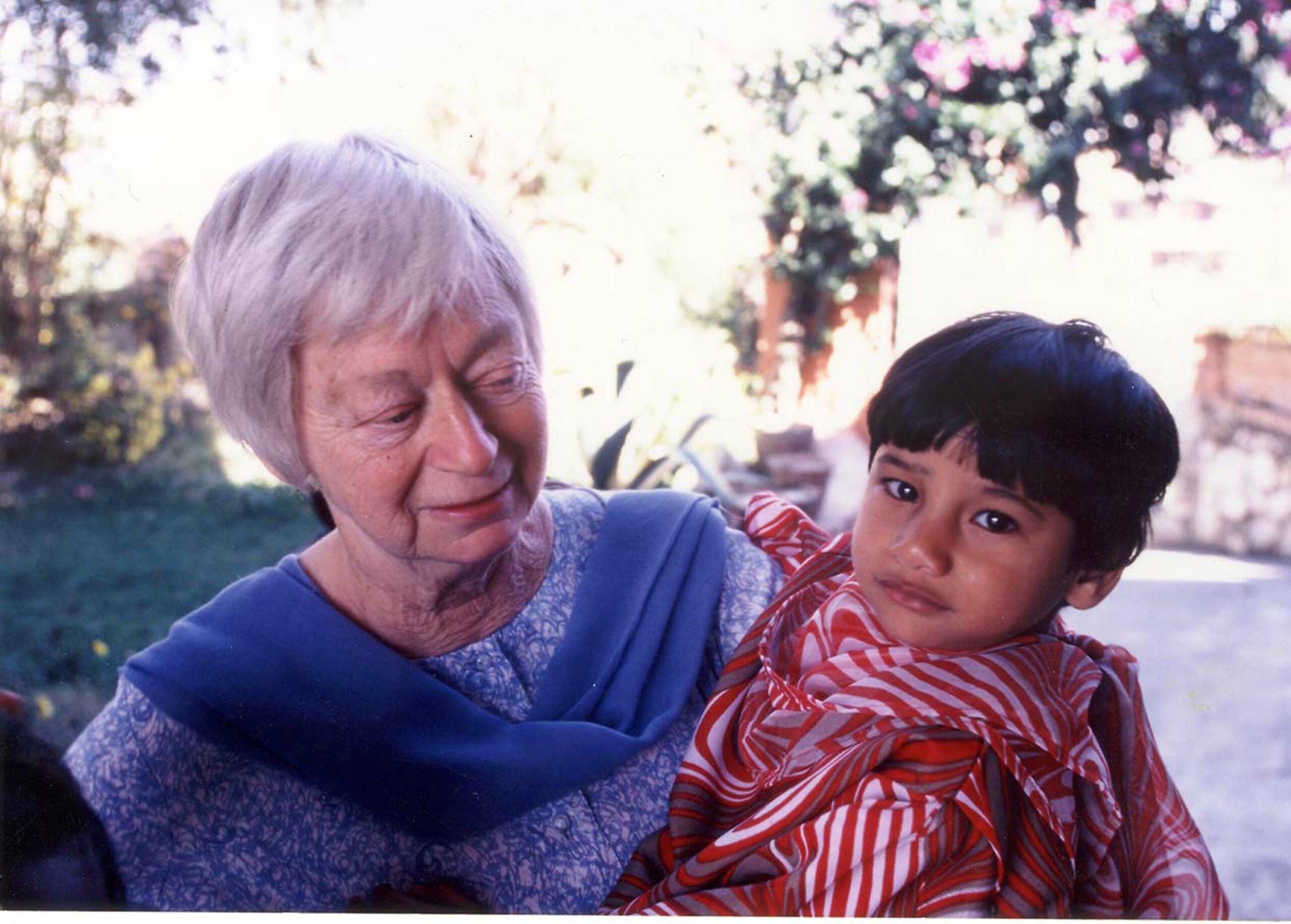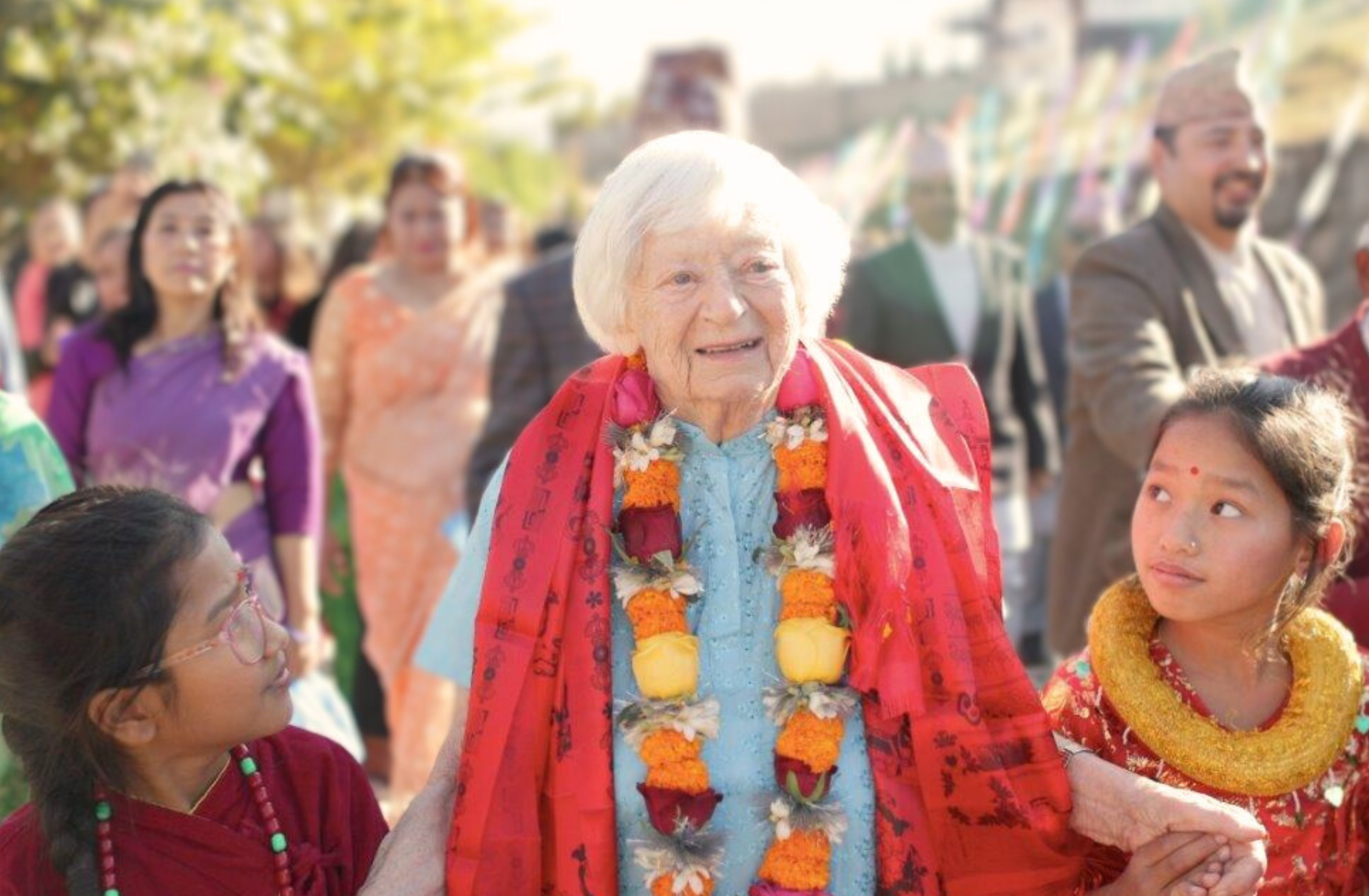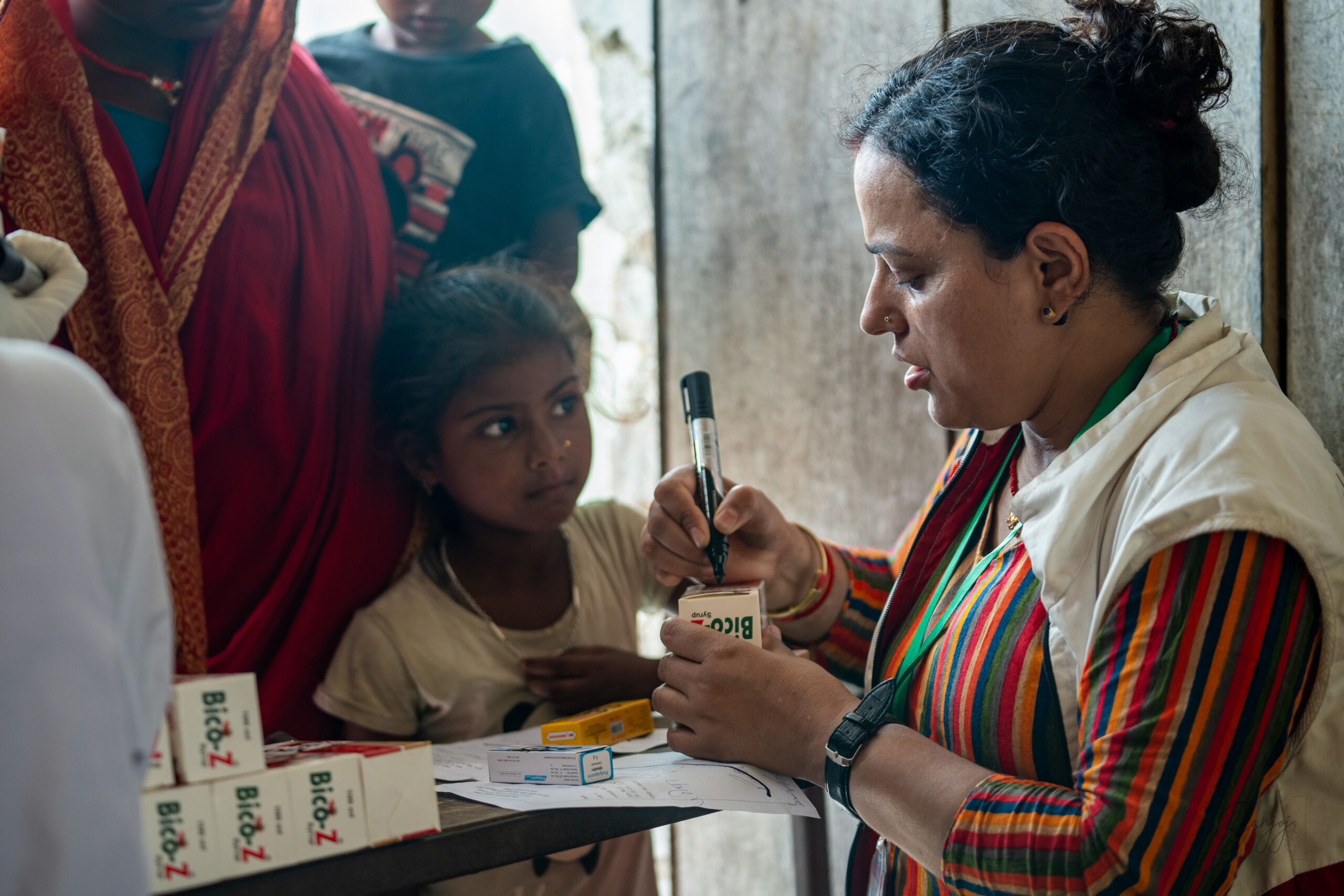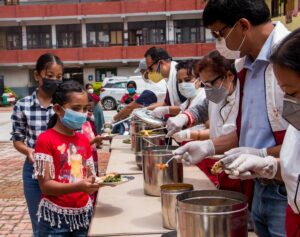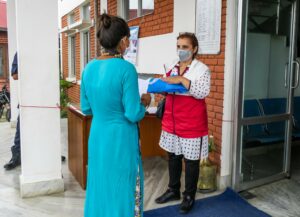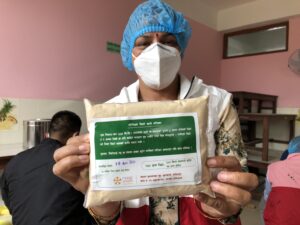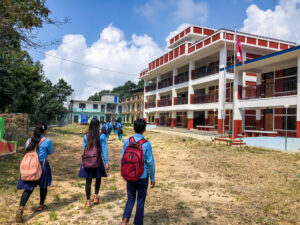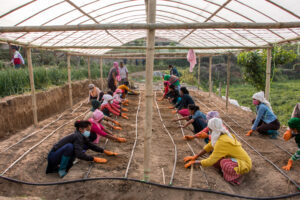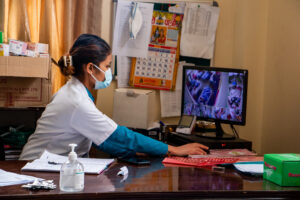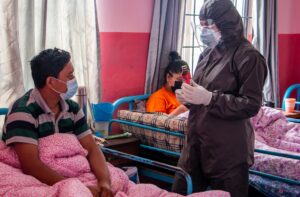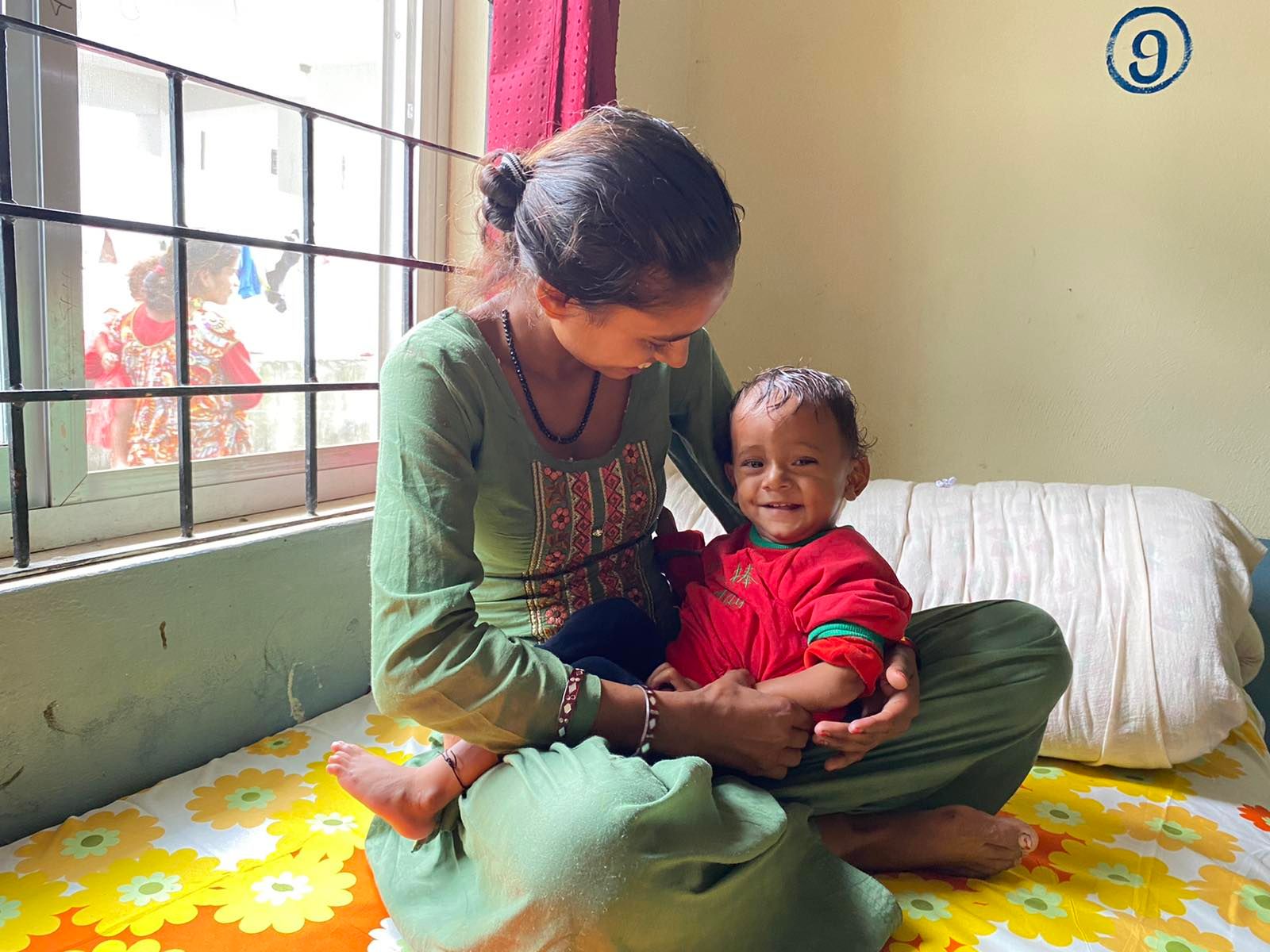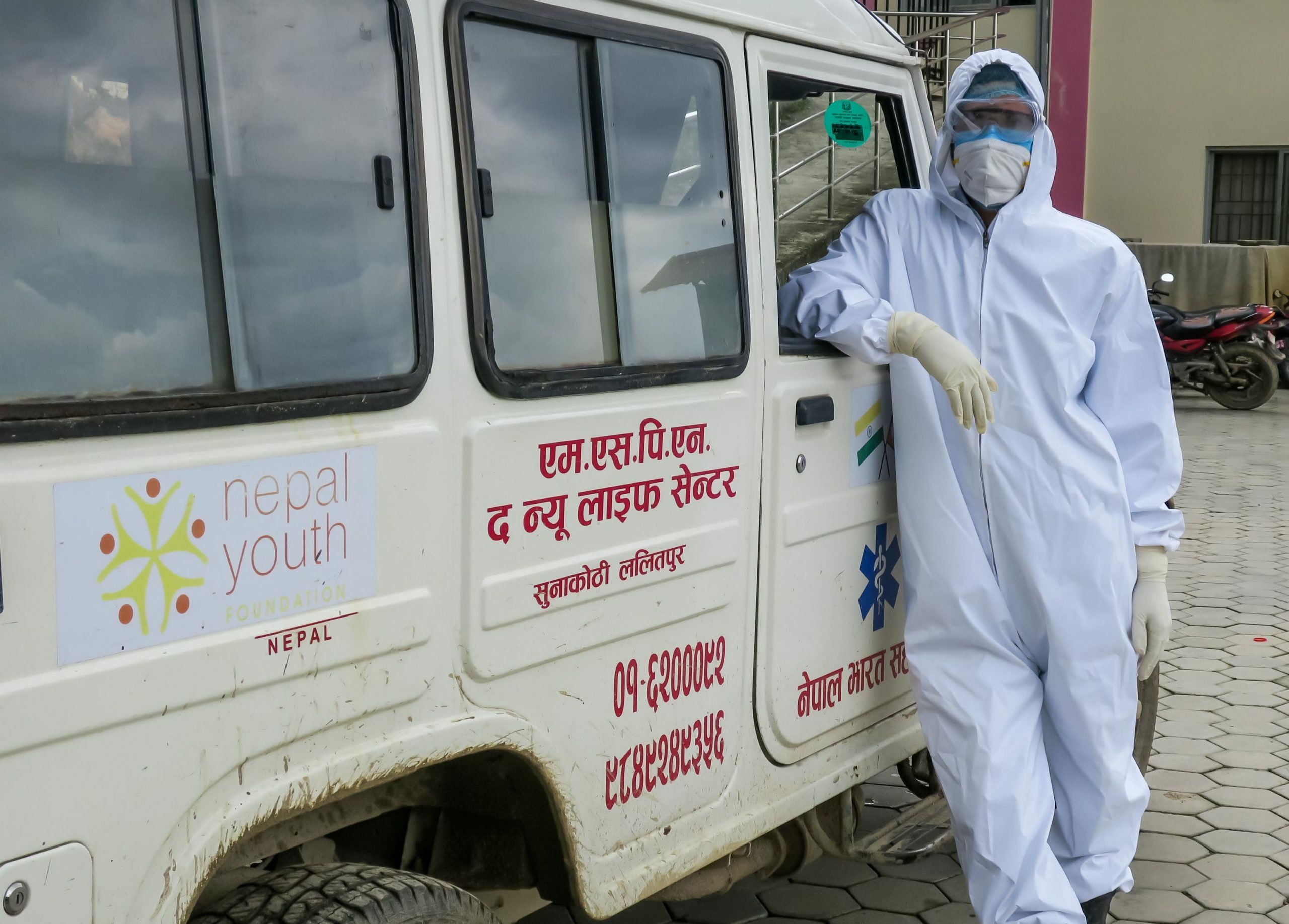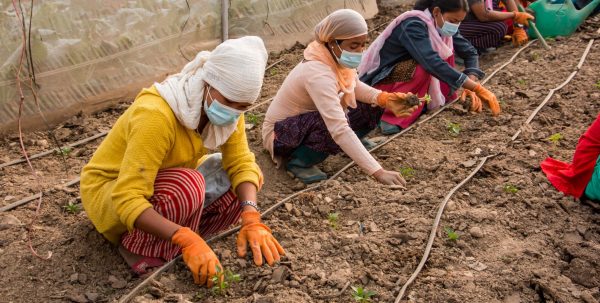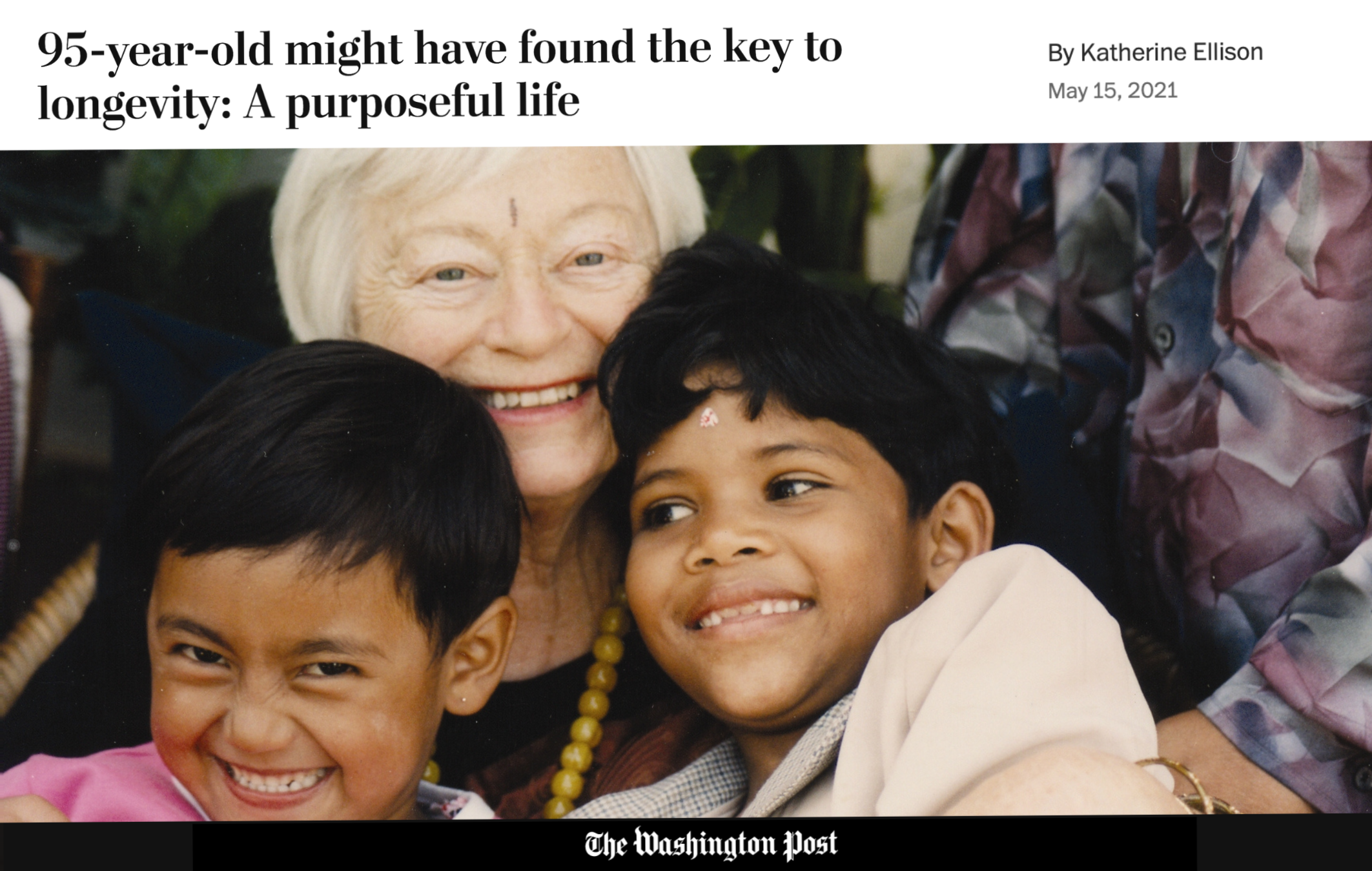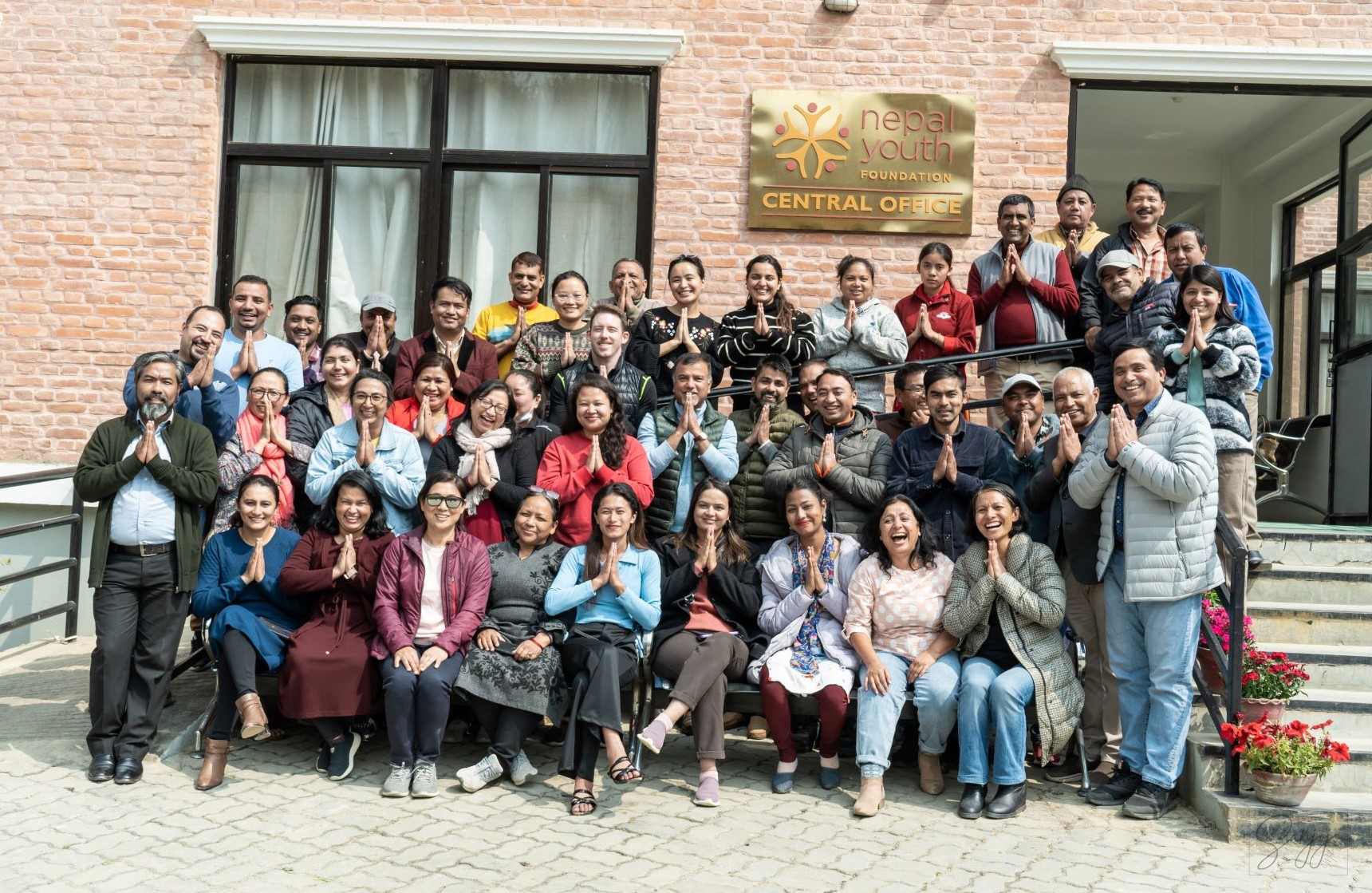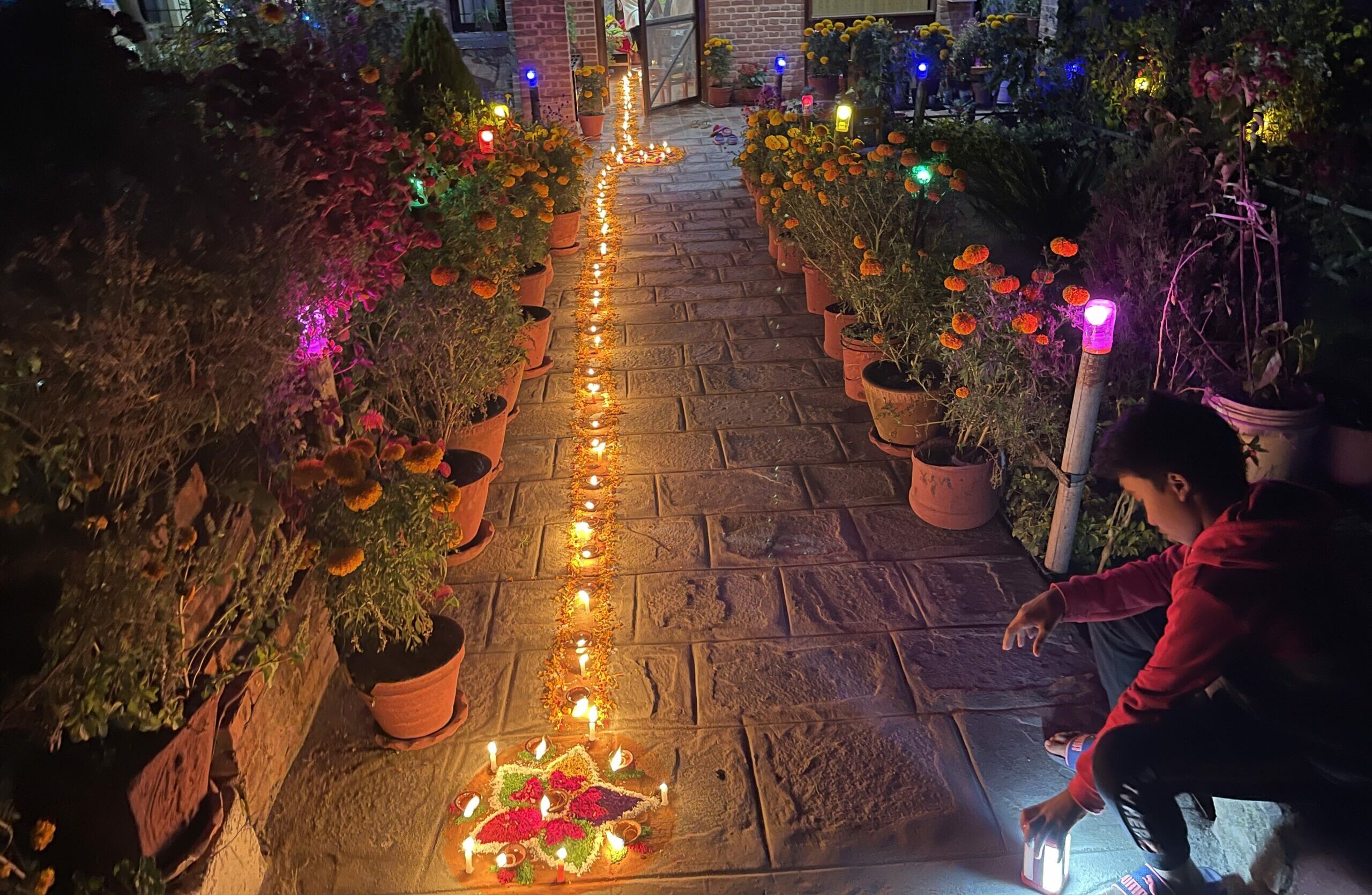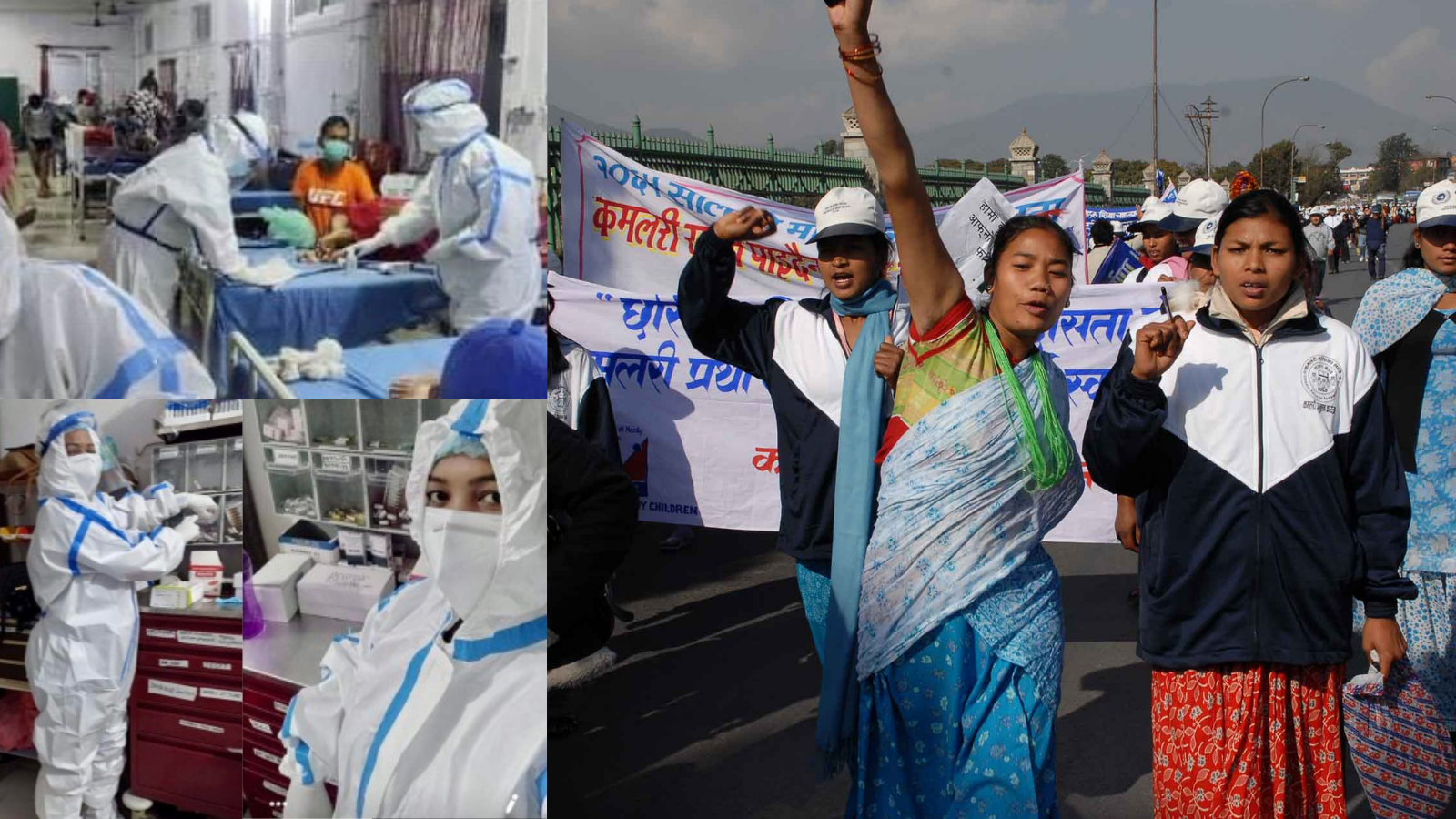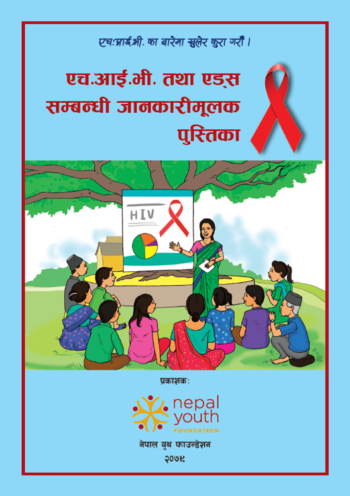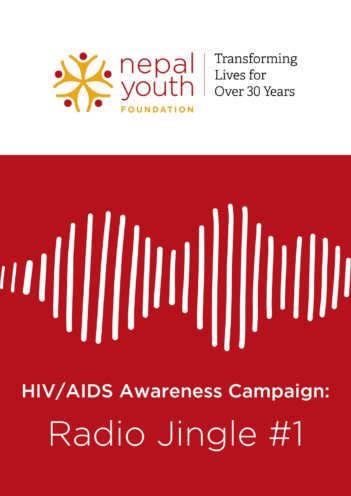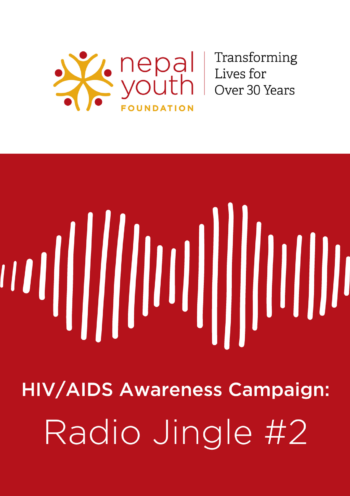Archives: Programs
Custom Post Type to show Programs that are related to the Nepal Youth Foundation
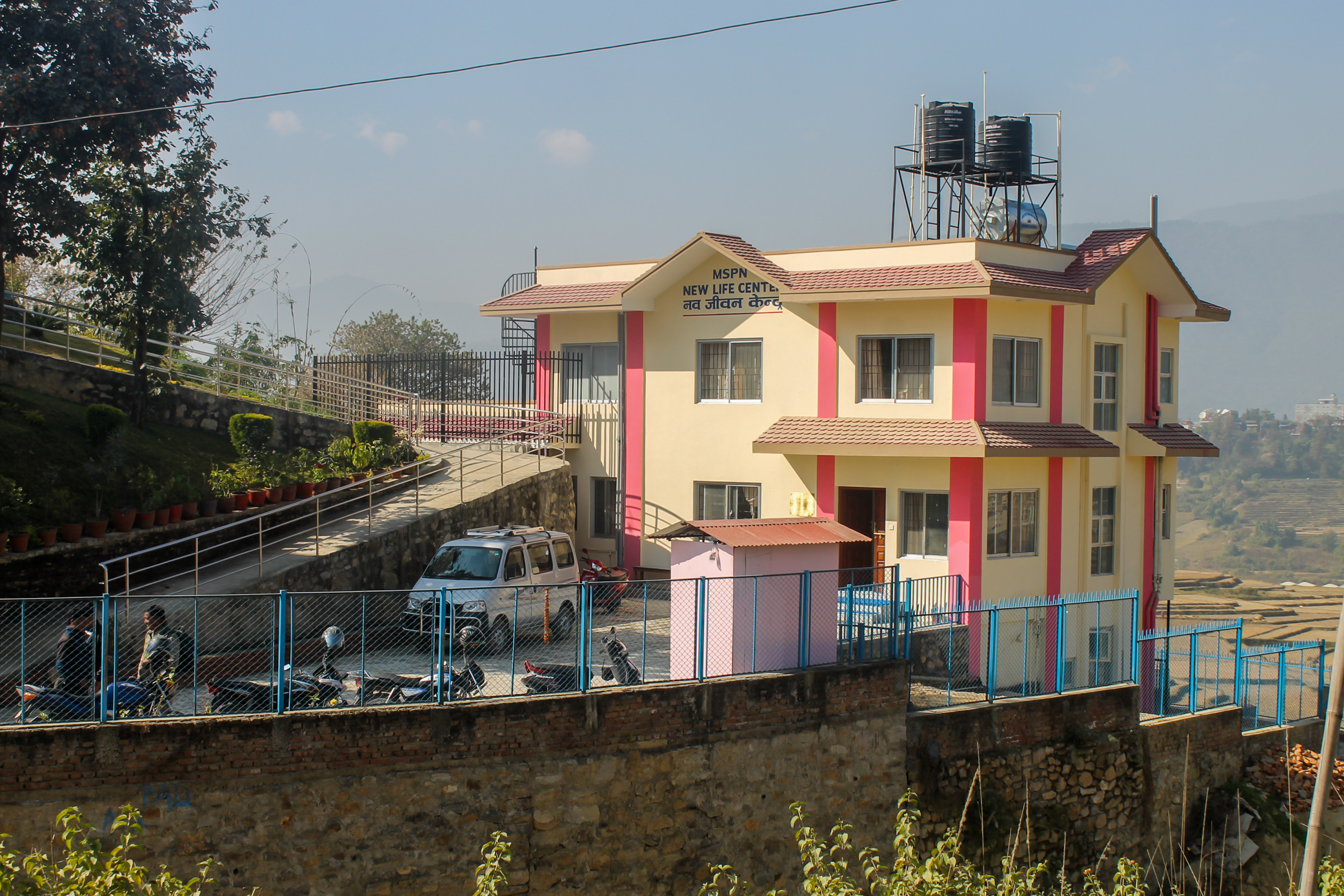
New Life Center - Medical Recovery Home
The New Life Center (NLC) is a safe, nurturing temporary recovery space for rural families visiting Nepal’s capital city of Kathmandu for critical medical treatment and surgery, especially for children and expectant mothers.
This resource allows children from some of Nepal’s most remote regions to access their right to healthcare—improving health and wellbeing for life.
Most of Nepal’s hospitals—especially those offering specialized treatments—are centralized in Kathmandu. A recent study showed that 57% of Kathmandu patients have traveled for treatment from more rural areas. This is a devastating expense for many families.
Children and their caregivers stay at the New Life Center for an average of 15 days—the typical duration required for follow-up and recovery from the acute medical conditions and procedures we typically see. During their stay, they receive individualized, supportive care free of charge, including monitoring from nurses, nutritious meals created under the recommendation of our dieticians, emergency support and ambulance service where needed, psychological counseling as-needed, and practical, supportive advice from our staff on how to understand and implement their doctors’ discharge instructions at home.
If you are looking for information on the New Life Center’s focused work with children living with HIV/AIDS, please visit the New Life Center – HIV/AIDS program page.
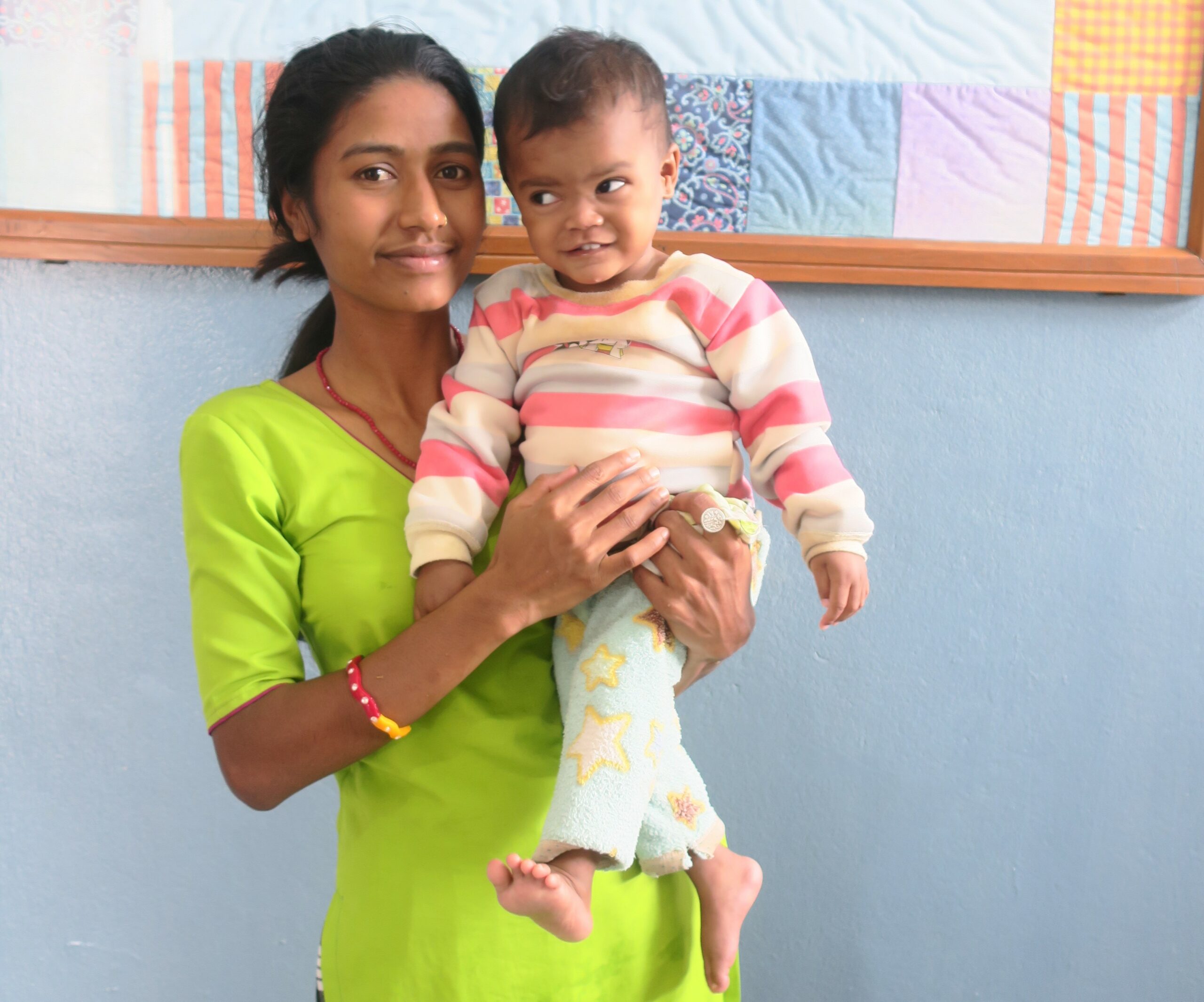
Priya* (30 months old) & her mother, Rani* (24) were the first medical recovery patients to visit the New Life Center in summer 2023. Priya was born with cleft palate, a condition that impacts a child's eating, drinking, and speaking. Cleft palate requires surgery to correct, but Rani was dismayed to learn that her daughter was not eligible for this surgery due to her low weight. Part of the reason Priya’s weight was low was due to difficulties with eating—caused by cleft palate! Rani had already spent her savings on the trip to Kathmandu, and she could not afford to travel home, bring her daughter’s weight up, and then return again. That’s when she was referred to NYF, where they not only received personalized nutritional care, but encouragement and nursing support as well. Priya and Rani belong to the Dalit community (traditionally seen as “untouchable” under Nepal’s caste system). Due to their caste identity, Rani expected extra challenges accessing healthcare for her daughter. This loving young mother was thrilled to receive the support of NYF through a program designed especially for families like hers.
*Names throughout this article have been changed to protect patient privacy.
How We Work
Although public hospitals in Nepal offer relatively subsidized health services, healthcare expenses in Nepal are fully out-of-pocket. This means that a surgeon will perform an operation at low cost, but tangible items like surgical supplies, food, medicine, IV fluids, casts, and medical implants like stents, pins, plates, and mesh must be purchased outright by the patient.
Many Nepali families sell property or take out loans—often with predatory interest rates—to manage these expenses. Over 11% of Nepali households can name catastrophic health expenditures as an obstacle in their journey out of poverty. Many of the students in our scholarship programs and in Kinship Care, and many of the kids at Olgapuri Children’s Village, have witnessed this cycle first-hand in their own families.
In many cases, the medical expenses themselves would be manageable—but travel expenses like transportation, food and drink, and temporary accommodations while waiting for test results or during recovery are not.
As a result, many families either forego treatment altogether, spend post-operation time sleeping out-of-doors with limited food, or return to their villages without completing their treatment and important follow-ups. This results in increased risk of complications, re-injury, infection, preventable disability, and even death. At the least destructive, it results in an excruciating journey home and a slower recovery rate for patients who were not able to focus on healing sufficiently before traveling.
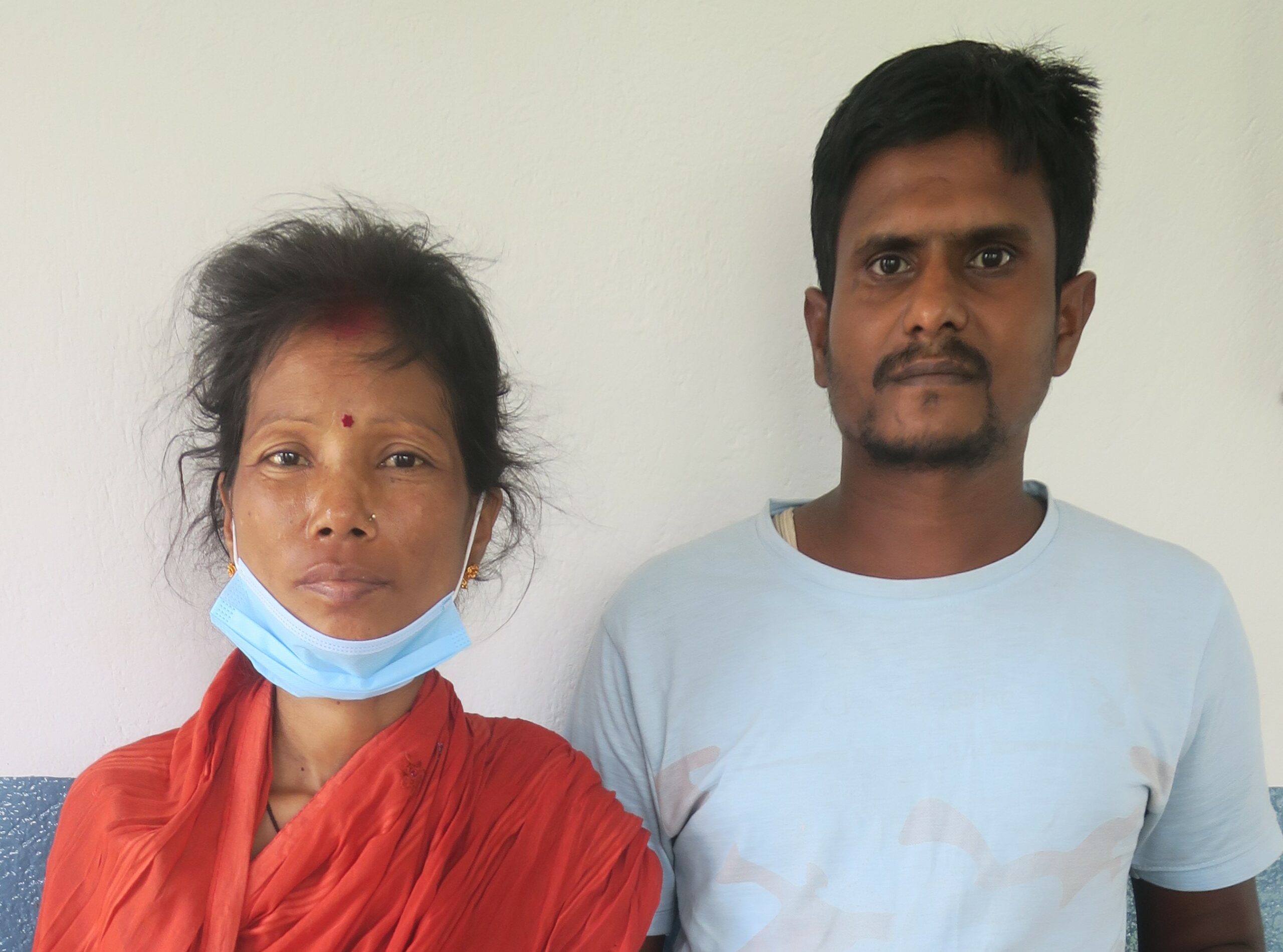
Uma* (35) was diagnosed with diabetes three years ago, and though she lives in a rural area, she has done her best to keep up with her medications while raising her two pre-teen children. Her family does not have much income, so they usually only visit the doctor in emergencies. Unfortunately, in July 2023, Uma’s symptoms suddenly began to spiral, and her husband, Bikram*, realized she would need urgent hospital care. By the time they reached Kathmandu, Uma could not walk on her own and her kidneys were in severe distress. After her emergency treatment, the hospital discharged Uma with instructions to return in one week for follow-up tests that would allow them to develop a new management plan for her case. Bikram was anxious about finding a place to stay in Kathmandu—and he was relieved when the hospital referred them to NYF. Uma still could not walk on her own, and Bikram was desperate to ensure she received the best possible care. The nurses at the NLC provided Uma with a nutritious, diabetes-conscious diet during her stay, advising the couple on types of foods to avoid moving forward. By the time Uma returned to the hospital, she was on her feet again and feeling much more fresh—though still understandably exhausted from her ordeal. She and Bikram thanked the NLC staff warmly, saying that they were both more likely to seek medical treatment earlier now that this resource was a possibility for families like theirs.
The New Life Center offers a solution for about 50 patients and their caretakers per year, based on their financial need, by providing them a safe place to stay during their medical visit to Kathmandu. Our patients are provided with transportation to and from the hospital, nutritious food, a safe and clean place to sleep, hygiene kits, and personalized nursing support to ensure the best possible outcomes for their children. They also receive information on topics like nutritional care, home health and hygiene, breastfeeding, HIV/AIDS awareness and prevention, women’s health, and family planning.
In extreme cases, NYF even covers the transportation costs for the journey home.
Who We Serve
New Life Center patients are:
- Children who have been discharged from the hospital but must return for follow-up treatment within a couple of weeks.
- Patients waiting for test results which may result in further treatment.
- Kids experiencing malnutrition who must attain a safe weight before a crucial surgery.
- Children with health conditions requiring specialized recovery support, including individualized training for caregivers.
- Pregnant women who are waiting to go into labor so they can give birth in a hospital.
- Postpartum women (especially post C-section women) who are waiting for follow-up appointments and healing for travel.
Patients may stay at the center as they prepare for forthcoming treatment and surgeries; they may also remain here while healing and waiting for follow-up treatments. They are referred by hospitals and clinics, other nonprofit organizations, and through word-of-mouth.
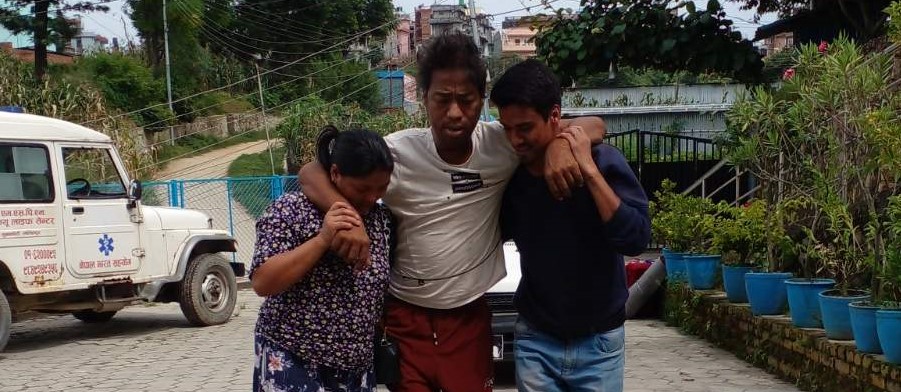
The NLC prioritizes children and mothers when providing services, but when beds are available, we are able to accommodate men on a case-by-case basis. Indra*, at center, a 40-year-old father from a remote village in eastern Nepal, visited Kathmandu for thyroid surgery to correct a rare disorder. The doctor informed him that he’d need to conduct follow-up checks after a week of recovery. Indra had spent all of the money he’d brought on the surgery and the hospital stay, and he had no idea where he could go to recover. Fortunately, the hospital connected him with the NLC. When he arrived at the NLC (pictured above), he had to be supported by his wife on one side and an NLC staff member on the other. Indra could hardly express his overwhelming relief for the care he received, saying that the NLC was like an “imaginary place”. After so much turmoil and stress, the warm nutritious meals and attentive care offered here allowed him some much-needed peace. “I will never forget these six days of help in my life,” Indra told our staff earnestly at the end of his stay. “Thank you so much for all you have done for me.” He assured us that everyone in his village would soon know that this resource was available—especially for women and children who were going without medical care due to financial hardship.
History
The New Life Center was originally created in 2006 as a specialized care home for children (aged 0-14) living with HIV/AIDS. Over the next 17 years, the NLC became a premier resource in Nepal for families impacted by pediatric HIV, saving hundreds of lives, empowering families, and contributing significantly to Nepal’s work to combat both the transmission of the virus and the stigma against those already living with this challenging diagnosis.
Nepal has made tremendous progress in slowing the rate of mother-to-child transmission of HIV, which has resulted in a reduced need for a specialized facility exclusively for children living with the virus. Awareness of ways HIV does (and does not) spread has also improved in Nepal, lowering the anxiety individuals feel about sharing space with those living with HIV.
Beginning in March 2020, during the COVID-19 pandemic, the NLC facility was emptied as patients returned to their home villages to avoid exposure to the coronavirus. Instead, the NLC was used as a supportive environment for mild-to-moderate COVID patients who were unable to isolate at home, with care for our HIV patients offered remotely. We began offering more of our HIV services in a remote capacity, and in 2022, the NLC received the smallest number of in-person HIV/AIDS patients we have seen since beginning our work in 2006, with most beds vacant.
This tremendous success for the HIV community meant that we could open this beautiful, nurturing space to a wider population of children in need of medical support. In 2023, the New Life Center’s mission expanded to include children and families traveling to Kathmandu for all kinds of life-changing medical care, including HIV, but no longer limited to it.
We are so grateful to the supporters who have made this resource possible to Nepali families. The New Life Center empowers children and families to access life-transforming medical care, to heal thoroughly without dangerous complications, and to live full, rich, joyful lives free of the long-lasting burden of crushing medical debt.
Your Donations
The New Life Center offers services free of charge to the families in our care. This incredible program is funded by loving donations from organizations focused on equitable healthcare for women and children and by individuals passionate about helping children and families thrive. Thank you for your support!
Related Articles
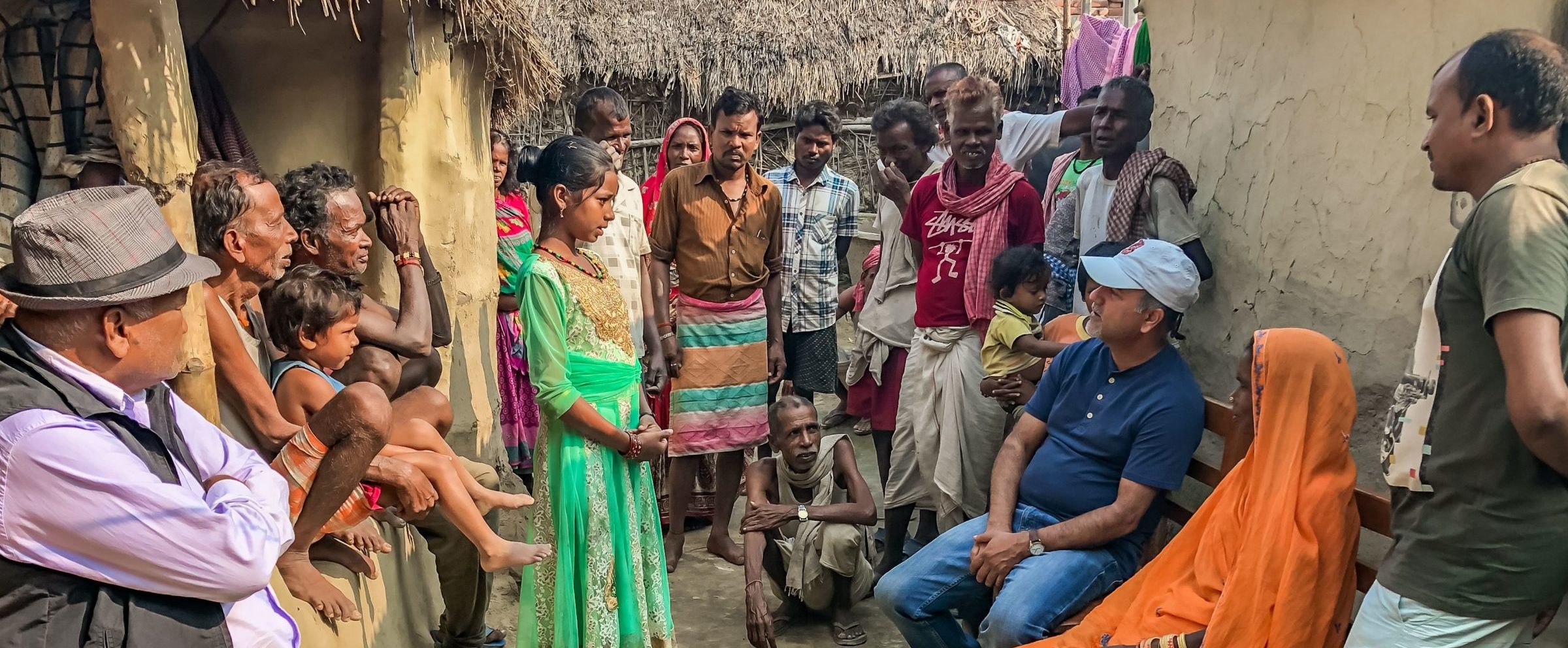
Caste Equality Project
Launched Summer 2022
NYF’s long-term Caste Equality Project is our most ambitious and daring undertaking yet. Our goal is to empower Nepali Dalit communities to access the opportunities and resources they need to build towards the futures they envision for themselves and their children.
Like our Empowering Freed Kamlaris program of 2000-2020, we expect this work to take a generation or more. Our full Caste Equality Project will combine lessons learned across our organization’s 30+ year history, providing on-the-ground interventions in Dalit communities who have endured the worst oppressions of all.
The challenges confronted by Nepal’s Dalit communities are complex and tightly woven with every aspect of life, from pre-natal care to early nutrition to educational opportunities to childhood friendships to housing stability and onward.
The Caste Equality Project will eventually include:
- nutritional education and home health resources for mothers,
- scholarships for all ages,
- school improvement projects,
- psychological counseling for children and adults,
- vocational training for youth to begin neighborhood improvement projects,
- advocacy,
- and so much more.
All the while, we’ll be encouraging change at higher levels in Nepal—first by championing human rights lawyers from the Dalit community in Phase 1, and developing further interventions in partnership with allies within the Dalit Rights community.
What We’re Doing
Stay tuned—we’ll be updating this page as this program develops!
Phase 1: Educating Dalit Lawyers (launching Summer 2022)
Educating Dalit Lawyers (or EDL) is an enriched law school scholarship program designed especially for graduating high schoolers from Nepal’s Dalit community, formerly known as the “untouchable” castes. These young people are hoping to become human rights lawyers who will eventually fight for the rights of Dalits in Nepal’s courts. Learn more here.
Casteism in Nepal
Like other entrenched systems of oppression throughout the world, Nepal’s caste system has a complex history.
For many centuries, changing political regimes worked to unify the Himalayan civilizations that would eventually become the Nepal we know today. A strict social hierarchy developed across this diverse population, rooted in the spiritual practices of Hinduism.
This “caste system” ranked families, ethnic groups, and communities based on their occupations, and strict laws solidified and enforced this oppressive social order. A person’s caste was—and still is—permanent.
Dalits are in the lowest of these castes and make up over 13% of Nepal’s population—around 4 million individuals. At least 42% of Nepal’s Dalits (over double the national average) live below the country’s poverty line of only $166 per year.
Caste-based discrimination was formally outlawed in Nepal in 1963 (with renewed commitment from parliament in 2006), but due to structural inequality, historical oppression, widespread tradition, and cultural bias, Dalits in Nepal face social, economic, cultural, religious, and political marginalization. Hate crimes and acts of violence often go unprosecuted, and many in these communities experience severe limitations in educational access, employment, housing opportunities, and health care.
Discrimination is worst in rural regions, but even in Nepal’s urban areas, where the culture has changed more rapidly towards a more merit-based model, stories still abound of shocking injustices experienced by those born into Dalit families.
The Dalit Rights Movement
Since at least the mid-1800s, social reformers in India and Nepal have become increasingly vocal against casteist injustice. Many in the United States and other Western countries will most quickly recognize the name Mahatma Gandhi (1869-1948)—a lawyer known for nonviolent civil rights activism and the Indian fight against British colonial rule, and for inspiring activists worldwide, including Dr. Martin Luther King, Jr. and Nelson Mandela. One of Gandhi’s major goals was the eradication of untouchability, which he called a great evil. (Gandhi’s efforts were not universally embraced in the Dalit rights community. Like any social movement confronting complex systems of oppression, the process of dismantling casteism is complicated, both within the movement and outside of it. Learn more here.)
Legal protections, justice, and progress towards equality for Dalits have been hard-won, with the journeys of these movements differing in each country and each community impacted by casteism. Most information available to Westerners about the caste system is specific to India, as most of the world’s Dalits live there. However, many of the issues facing Nepali Dalits are distinct. At NYF, we’re grateful to have our all-Nepali team to guide our efforts!
The COVID-19 pandemic has made social injustices more starkly visible across the world, and social media has given communities a stronger ability to organize themselves—especially younger generations. Young Dalits are pushing back, inspired in part by the American #BlackLivesMatter protests in the summer of 2020 and beyond.
This “Dalit Lives Matter” movement has seen advocacy initiatives gain strength in both India and Nepal, with court cases involving violence against Dalits receiving unprecedented national attention.
Many of the most successful court cases are presented by lawyers who are themselves members of the Dalit castes—lawyers who personally understand the experiences of their clients, and are prepared to argue their cases with devastating precision and clarity. But in Nepal today, only about 200 Dalit lawyers exist. That’s only 0.001% of the Dalit community. Of the judges serving in Nepal, only .01% are Dalit. Dalits are drastically underrepresented at all levels of Nepal’s government.
Now, with young Dalits across Nepal uniting to push back against systemic oppression, the stage is set for unprecedented social transformation—and NYF is perfectly positioned to support the work of these impassioned young activists.
Partnerships
As always, NYF is developing this project in partnership with local grassroots NGOs, Dalit rights advocates, and community members—a proven approach for ensuring far-reaching, sustainable social change.
Here are a few of the partners helping to ensure we work as effectively as possible:
- Dignity Initiative is a Dalit-led NGO based in Kathmandu, advocating for the rights of the Dalit community through research, activism, policy advocacy, youth empowerment as well as critical engagement in public debate. They are partnering with NYF on Phase 1: Educating Dalit Lawyers. Learn more by visiting our Phase 1 program page!
New partners will be added to this page as the Caste Equality Project grows.
Learn More
The Dalit Rights Movement and the push against casteism have been in the news frequently in Nepal recently. If you’d like to learn more, here is some coverage written by Nepalis and published in English.
Himalayan Times, June 5th, 2022, “Caste Discrimination Still Entrenched,” by Ram Kumar Kamat – an overview of casteist discrimination and the ways law enforcement is failing to protect Dalits.
Related Articles

Educating Dalit Lawyers
Introducing Phase 1 of the Caste Equality Project
Launched Summer 2022
Educating Dalit Lawyers (or EDL) is an enriched law school scholarship program designed especially for graduating high schoolers from Nepal’s Dalit community, formerly known as the “untouchable” castes.
These bright young scholars have grown up watching their communities and families experiencing caste-based discrimination and injustice. From their earliest days, they’ve heard damaging messages about themselves, and have endured small and large acts of systemic oppression. Each knows countless stories of violence, neglect, and exploitation of people just like them.
But this rising generation of young people is eager to push back—and NYF is determined to empower them to do so!
We’re combining our successful experience with Empowering Freed Kamlaris and our strong reputation as a committed scholarship provider to support young Dalit students hoping to become human rights lawyers.
Students in this program will receive:
- Full-ride scholarship support as they pursue Nepal’s 5-year Bachelor of Legislative Law, or LLB, degree (the degree required to become a lawyer in Nepal) in some of Nepal’s best colleges;
- Accommodation and food stipends;
- Extracurricular opportunities including fieldwork and participation in human rights programs;
- Mentorship opportunities with successful human rights lawyers;
- Leadership training;
- Opportunities to observe Nepal’s legal system in action;
- Introductions to legislators and other Nepali leaders;
- Internship placement support.
Support will continue as students prepare for and sit for the Nepali Bar Exam.
Updates
Update – June 2023
Our scholarship team is working with Dignity Initiative to refine our application and selection process for the next group. We are launching our next call for applications in our Educating Dalit Lawyers program very soon!
Update – March 1, 2023
Our first group of 16 Educating Dalit Lawyers (EDL) scholarship recipients started classes on Monday, February 27th, 2023. They are attending the three best law campuses in Nepal, each affiliated with Tribhuvan University.
Each student is being paired with a mentor human rights lawyer, with immersive networking activities being organized in partnership with Dignity Initiative that will ensure these students receive exposure to Nepal’s legislative process in action and connections with individuals and organizations focused on improving the status of Dalit communities throughout the country.
Meanwhile, these students (who hail from each of Nepal’s seven provinces) are sharing their experiences with each other and gaining valuable insight into the broad issues facing Dalit communities in every corner of their nation. The friendships formed here will strengthen the work each will do as lawyers in the future.
Visit this blog post to read two student profiles: https://www.nepalyouthfoundation.org/educating-dalit-lawyers-update/
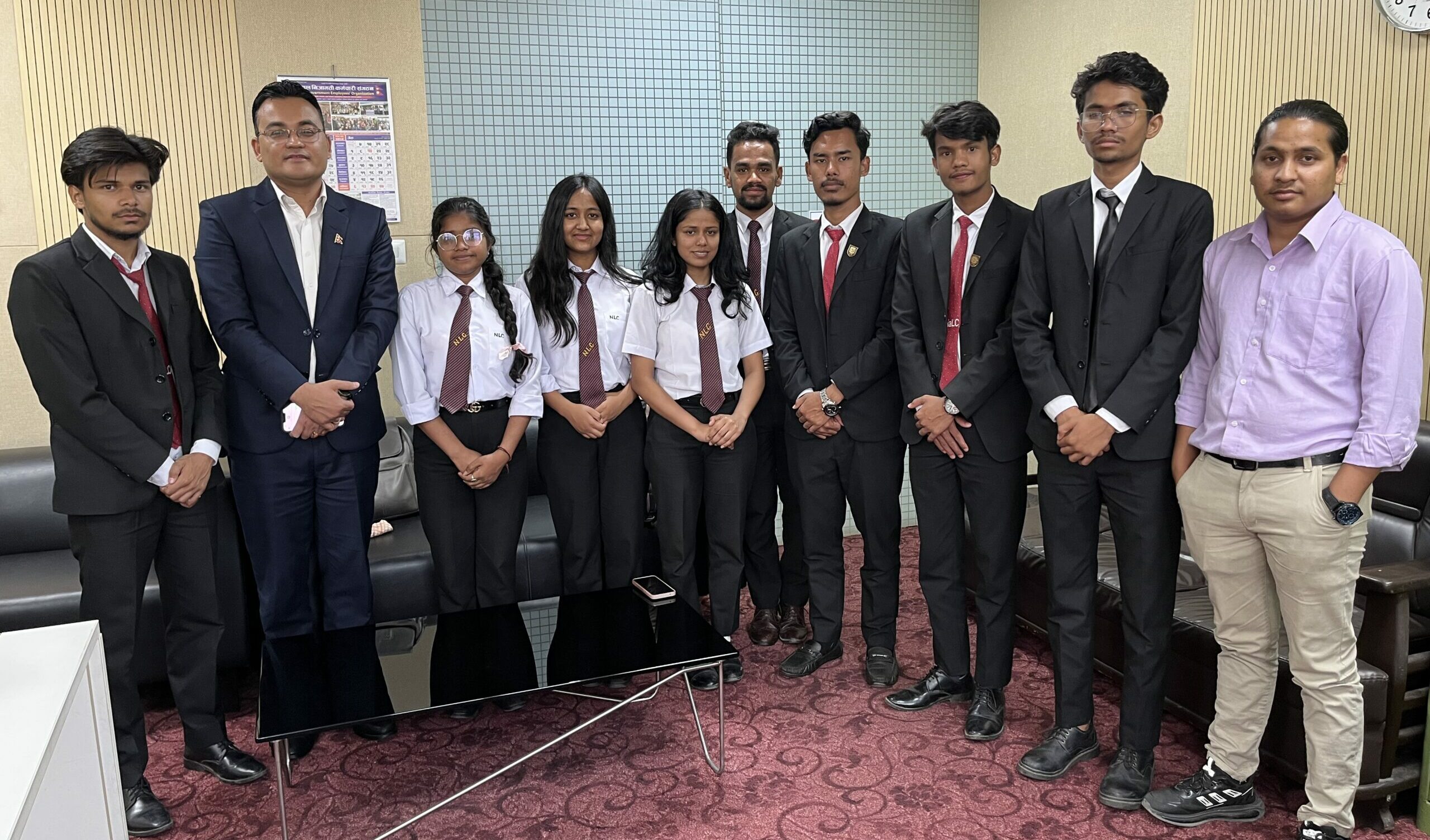
Update – December 13, 2022
COVID-19 lockdowns in 2020 and 2021 caused significant disruption to Nepal’s educational system – especially the nationwide standardized testing schedule. Some of the impacts of this disruption are still ongoing, which, for our EDL students, meant that the competitive law school entrance exam was delayed for several months!
Our students have taken this delay in stride, eagerly taking advantage of the extended study time and enjoying the opportunity to become more familiar with life in Kathmandu.
We’re pleased to report that the students finally sat for this exam early in December. They are now waiting for their scores to appear, hopefully by mid-January. At that stage, we’ll be able to share some of the stories of the students who are receiving this full, enriched scholarship!
Update – August 3, 2022
The student selection process is finally complete! 22 students have been selected and placed in hostels in Kathmandu to prepare for the law school entrance examination. Our hope is that at least 15 of these students will score enough to be eligible to enter into law school. On August 2nd, NYF held an orientation and introduction program at Olgapuri Village. We’re so excited to get started!
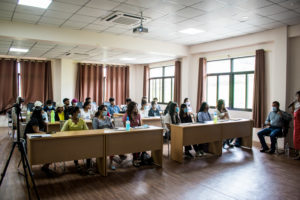
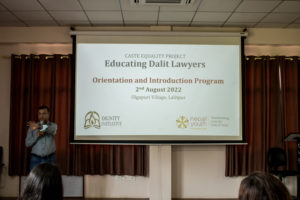
Update – July 8, 2022
This program is in the application assessment phase. We have received over 100 applications from hopeful students from all seven of Nepal’s provinces. Our applicants have come from a strong mix of male and female candidates, with individuals coming from a wide variety of Dalit subcastes.
An assessment committee is now working through these applications. The committee is comprised of two NYF staff members, two Dignity Initiative members, and one unaffiliated education member, using a strict method of determining who our scholarship recipients will be. We are deeply committed to ensuring we balance all factors as equitably as possible as we make our selections, bearing in mind the unique strengths, challenges, triumphs, obstacles, and aptitudes of each candidate.
Our team will select 20 students who will come to Kathmandu to prepare to take Nepal’s rigorous law school entrance exam. The top 15 students will receive the full scholarship.
We do not yet have photos or stories to share for this program. We look forward to sharing more later in the summer and in the fall!

Dignity Initiative
NYF is launching Educating Dalit Lawyers in partnership with Dignity Initiative, a Dalit-led NGO based in Kathmandu.
Dignity Initiative is devoted to advocating for the rights of the Dalit community through research, activism, policy advocacy, youth empowerment as well as critical engagement in public debate. The organization prides itself on providing Dalit Rights groups with appropriate data, evidence, and policy insights on key issues related to the Dalits.
Dignity Initiative was established by Dalit academics, researchers, writers and activists. The team is inclusive in terms of gender and caste/region within Dalit community.
Your Support
Support for the Educating Dalit Lawyers program has been overwhelming during this launching phase. Thank you! This program is fully-funded through the first year (fall 2022-summer 2023), but we will need continuing support as the program grows.
NYF is always in need of unrestricted funding to ensure all of our programs are able to run smoothly, including those that are fully funded. If you would like to make a gift that makes an immediate impact, please make your donation without specifying a program.
If you would like to support Educating Dalit Lawyers in particular, we welcome your support! Your EDL donation will provide a strong foundation for fall 2023-summer 2024!
NYF is currently raising funds in support of Educating Dalit Lawyers. One year of support for each student in this program costs approximately $4,000. To support these determined students, please donate now!
When asked “Where would you like your gift to have the most impact?”, write “Educating Dalit Lawyers.”
Learn More
If you’d like to learn more about the court cases currently inspiring the Dalit Rights Movement, here are a few English-language resources to help you get started.
Please note that the stories below are only a few of the highest-profile cases—those receiving sufficient media coverage to be translated for publication in English. They represent a small fraction of the incidents of violence and discrimination faced by Nepal’s Dalit communities.
These are the kinds of cases our young law students are hoping to tackle in Nepal’s courts.
Rupa Sunar vs. Saraswati Pradhan: In Kathmandu in 2021, journalist Rupa Sunar was approved for an apartment, but the offer allegedly fell through when landlady Saraswati Pradhan learned Sunar belongs to a Dalit caste. This case is working its way through Nepal’s courts.
The Rakum West Massacre, 23 May 2020: Be warned, coverage of this crime is graphic and difficult to read. In a hilly region of Nepal, 21-year-old Nabaraj BK (a Dalit) and his 17-year-old girlfriend (from a higher caste) planned to elope against her family’s wishes. The groom’s 18-person wedding procession was ambushed on the way to the bride’s home in a nearby town. Survivors from this attack report that the bride’s entire village participated. When the police arrived on the scene, the 12 seriously-injured members of the wedding procession were arrested and interrogated. None of their attackers were detained or questioned. Only when members of Nabaraj BK’s village arrived to search for their loved ones did the police acknowledge the severity of the incident. Six young men (four of them Dalits) had been stoned to death and thrown in a river, including Nabaraj BK. There is evidence of an attempted cover-up by local police. Only after external pressure from the surrounding areas, and at the endless insistence of the families of those murdered, did the police begin an investigation. The incident was investigated by an external team sent by the national government. Thirty-four people have had charges filed against them, including members of the would-be bride’s family and elected village leaders. As of mid-2022, these cases are working their way through the courts.
Caste Based Discrimination Sees No Decline: Reflections on caste-based violence before and during the COVID-19 pandemic.
Dalit Killings Spark Outrage: Be warned, this article discusses graphic violence, including cases involving children. A Nepali journalist discusses high-profile cases involving casteist violence and speaks of the intersections with the Black Lives Matter movement amid the nationwide lockdowns.
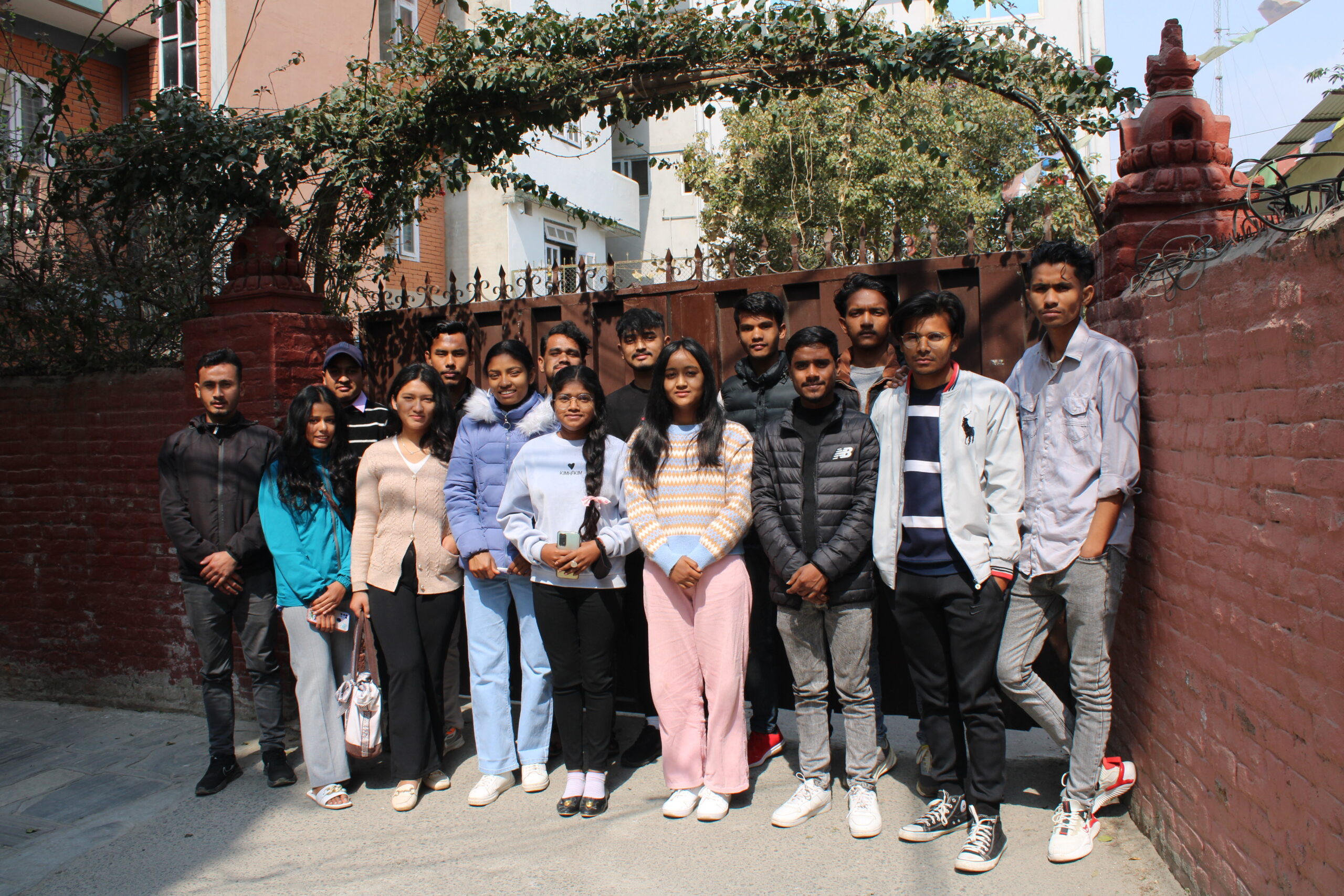
Related Articles
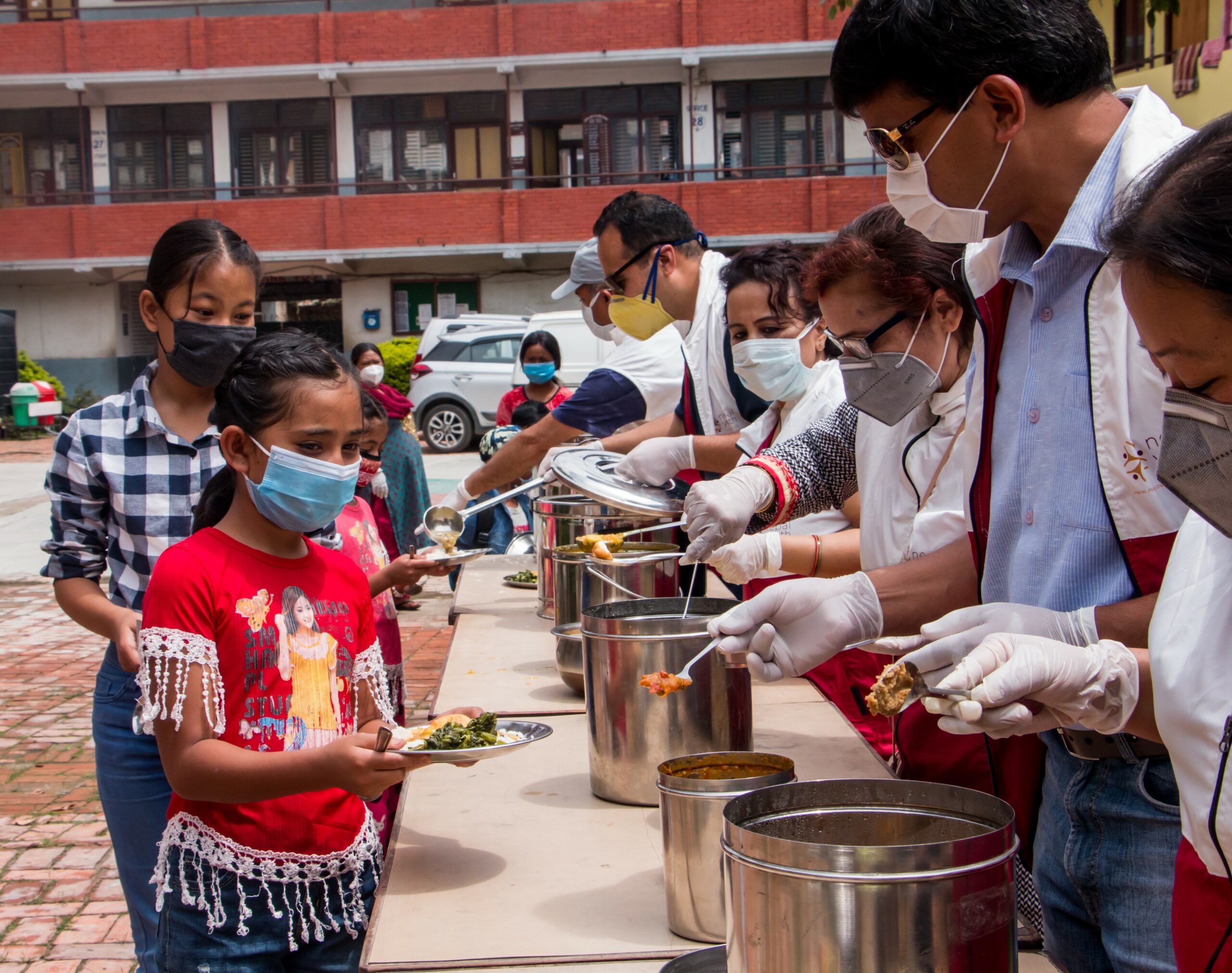
NYF's COVID-19 Response
A brief overview of COVID-19 in Nepal; and NYF’s strong responses to it.
This page is a developing piece. Last updated: 7/13/2022.
On March 11, 2020, The World Health Organization (WHO) declared COVID-19 a pandemic. Not too long after, on April 4th, 2020, Nepal confirmed its first locally-transmitted case of COVID-19. Since then, NYF has launched five emergency programs in response to the pandemic (Community Nutrition Kitchens, The Emergency Lifeline Halfway Home, Access to Education, Lito for Life, and our very own COVID Isolation Center).
Thanks to our dedicated team in Nepal and loving support from the wider NYF community, these programs have been an incredible success. Chiri Babu Maharjan, Mayor of Lalitpur Metropolitan City, has commended NYF “for its outstanding services since the very beginning of the COVID-19 pandemic in Nepal, and for the well-facilitated quarantine and COVID Isolation Center in partnership with Lalitpur.”
NYF’s swift and effective response to the deadly surge of the Delta variant in April 2021 has also been highlighted by BBC World News.
NYF remains incredibly grateful for our community of supporters, and for our amazing team in Nepal. Thank you all for being so patient, supportive, and generous during these challenging times. Whether you joined us recently or have been here with us since the beginning of this pandemic: Dhanyabad.
A quick look at our collective impact:
46
people sheltered via The Emergency Halfway Home
80
education centers opened via Access to Education
5,061+
kg of Lito flour distributed through Lito for Life
5,311
hot meals served through Community Nutrition Kitchens
240+
patients treated at NYF's COVID Isolation Center
Our Pandemic Timeline

Related Articles
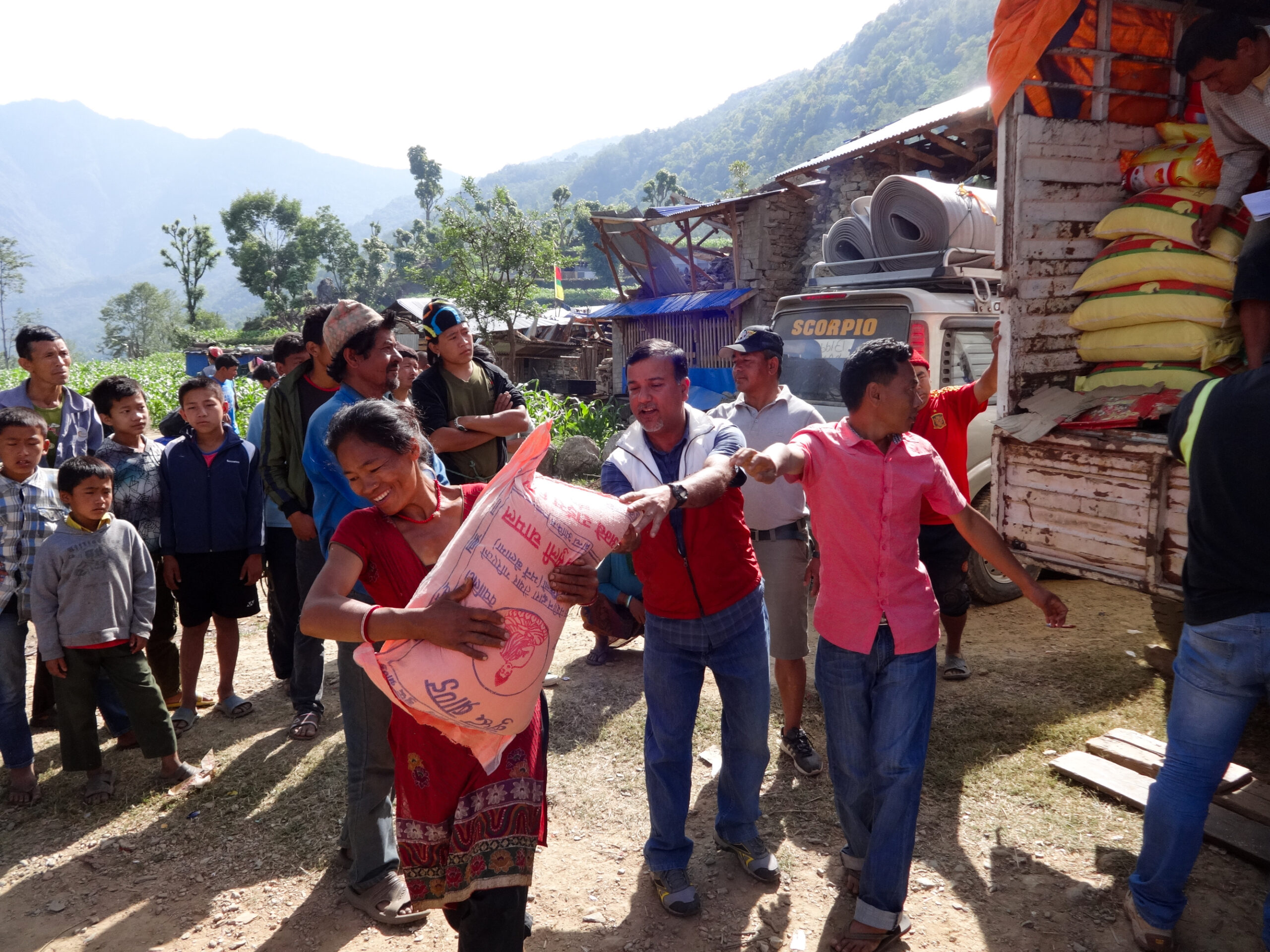
2015 Gorkha Earthquake Response
This Program Concluded in 2018
Just before noon on April 25th, 2015, Nepal was rocked by a 7.8 magnitude earthquake centered in Gorkha District. It was the worst natural disaster to hit Nepal since 1934, killing 8,964 people and injuring a further 21,952. Twenty-two people died in an avalanche on Mount Everest, making this the deadliest day in the mountain’s history.
Much of the country’s rich architectural heritage—ancient temples and revered monasteries—were reduced to rubble. Whole villages close to the epicenter of the quake, in the Gorkha and Sindhupalchok Districts, west of Kathmandu, were completely destroyed, with not a single home left standing. Nearly 3.5 million people were left homeless in a matter of moments.
Aftershocks continued to rock the country for days and weeks after the initial quake, with nearly 40 over a magnitude of 4.5, and with some reaching magnitudes of 6.7 and 7.3 and causing further damage.
By the third day following the disaster, NYF was responding quickly and decisively, first with emergency shelters and medical supplies, then with longer-term protective housing for children displaced by the earthquake, and finally, by providing construction training and financial backing to rebuild schools and homes in impacted regions.
Relief programming ran from 2015 through 2017. Support reached the 9 districts closest to the epicenter: Gorkha, Dhading, Kathmandu, Lalitpur, Baktapur, Sindhupalchowk, Kavre, Dolakha, and Nuwakot. Much of what we learned during this time later inspired our massively successful COVID-19 Response.
Phase 1: Emergency Relief
- Recovery Shelter: NYF converted its Nutritional Rehabilitation Homes in Kathmandu and Pokhara into temporary recovery centers to serve patients discharged from area hospitals but too injured to return home. (Lessons learned during this time inspired our COVID-19 Response.)
- Hospital Support: NYF provided $80,000 worth of medical and surgical supplies to the four largest government hospitals in Kathmandu, including beds, blankets, food, clothing, and medical equipment. NYF also used school buses to transport more that 100 injured people home from area hospitals.
- Emergency Supplies to Families & Communities: NYF distributed 10,000 kgs (11 US tons) of food; 1,000 items of clothing; hygiene supplies; 1,600 tarpaulins; 470 mega-size water filters for schools & community groups; and 10,000 mosquito nets in the worst affected districts.
- Day Care & Learning Centers: Following the quakes, NYF opened 17 Day Care & Learning Centers in Kathmandu Valley and Dolakha, serving more than 1,200 children. At the centers, children received nourishing food, education, psychological counseling, and recreation. The centers provide a respite for parents to recover from the earthquake.
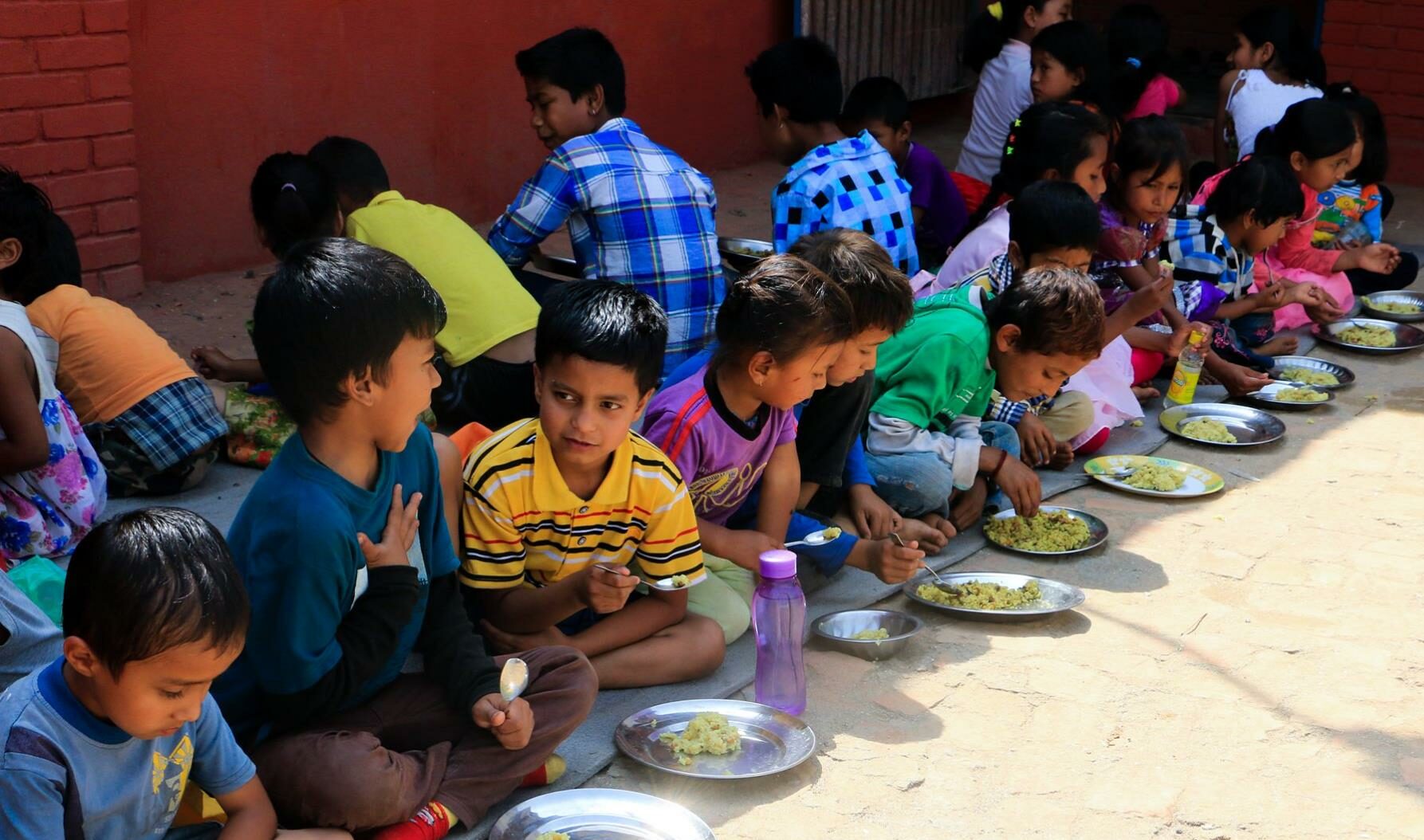
Children at an NYF Day Care & Learning Center enjoying a nutritious lunch while chatting with each other. While NYF watched over these kids, parents were hard at work rebuilding, identifying work opportunities, assisting neighbors, and more - all while knowing their children were enjoying healthy learning and social activities in the company of friends.
- Psychological Support for Earthquake Survivors: NYF developed a psychological support program focusing on children, parents, and teachers. Ankur Counseling Center staff trained 300 teachers and volunteers on psychological support & psychological first aid and provided counseling for 800 children and 150 adults.
- Temporary Tent Shelters: NYF distributed temporary shelters to 1,263 families in the districts of Gorkha, Kavre, Sindhupalchok and Kathmandu Valley. NYF also distributed 590 community tents large enough to accommodate 20 people each.
- Transit Homes for Children: At the request of Nepal’s Central Child Welfare Board, NYF opened two transit homes for children who lost their parents and guardians, or who were unaccompanied. This intervention was especially critical to protect children from human traffickers, who unfortunately flock to areas experiencing disasters. NYF cared for these children until extended family members could be identified, with many entering our Kinship Care program. Relatives were overjoyed to discover these children alive and well, as in many cases, they had feared the entire family had been killed in the quake.
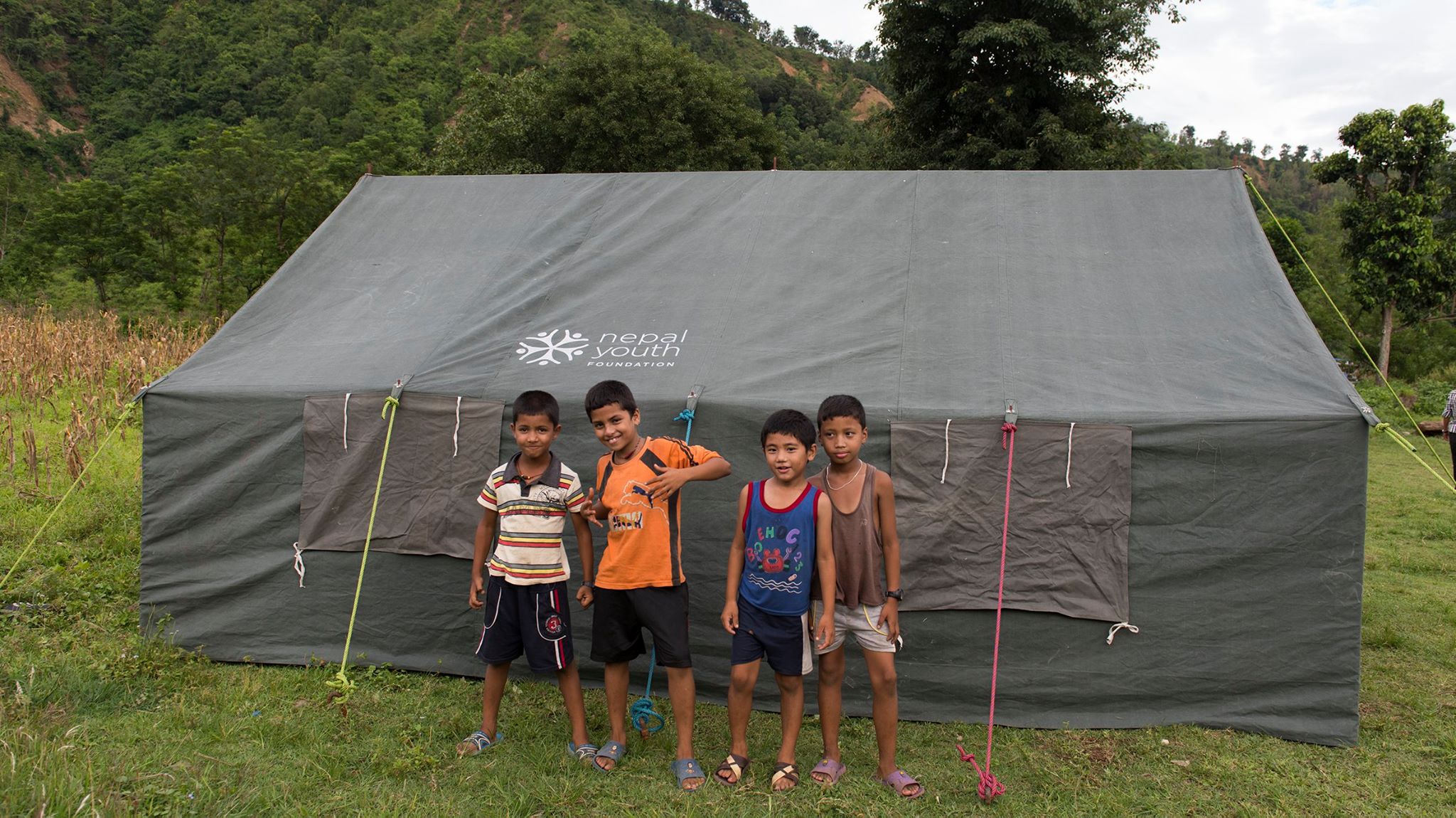
In hard-hit Gorkha District in summer 2015, a group of boys showed off the community tent they'd been living in since May. Their village was completely destroyed by the earthquake, and now that monsoon season had begun, this simple shelter made a tremendous difference in their community's recovery. Photo by Alison Wright.
Phase 2: Rebuilding & Rehabilitation
- Community Nutrition Kitchens: NYF opened 10 kitchens in local primary schools to provide nutritious midday meals. At the same time, mothers received education on nutrition and health & hygiene. A total of 1,000 children and 1,500 mothers benefited from the program. (Lessons learned during this time inspired our COVID-19 Response.)
- Classrooms: More than 52,000 classrooms were rendered uninhabitable by the earthquakes. NYF, with advice from engineers and architects, designed an affordable, seismically safe structure and built 229 classrooms in 45 community schools.
- Reconstruction Skills Training: In order to give local recovering young adults training and paid work in the aftermath of the disaster, our Vocational Education & Career Counseling program trained 692 men and women in masonry and 44 in electrical & plumbing, allowing them to participate in rebuilding efforts and enter the construction trades. (The success of this program led us to design the certification courses now offered at Olgapuri Vocational School.)
- Kinship Care: NYF’s Kinship Care program expanded, placing 800 children whose parents were killed or incapacitated with loving extended family members and ensuring they could attend school.
- Scholarships: An additional 300 young adults impacted by the earthquake received college scholarships through NYF’s Scholarship program.
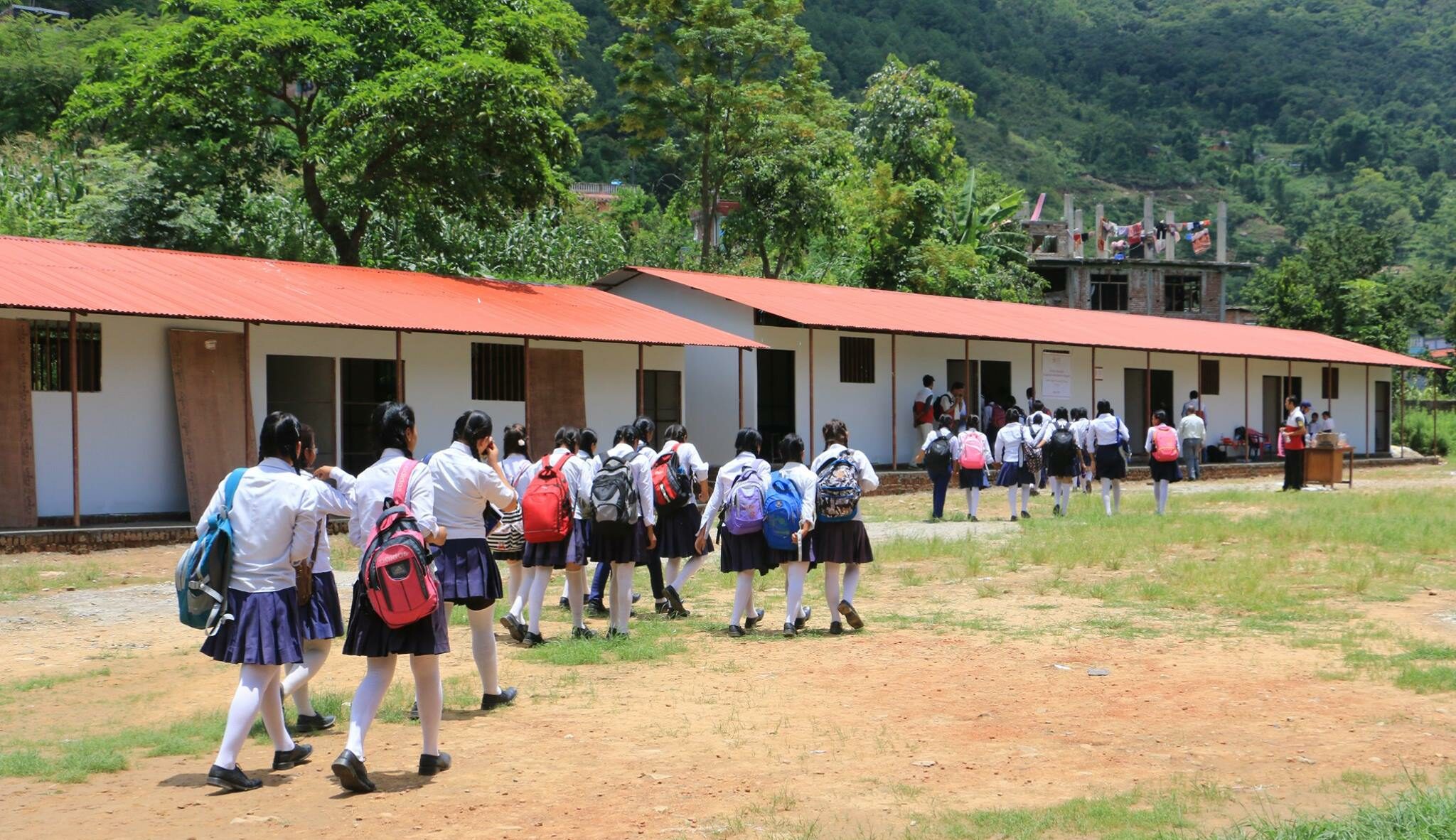
Students in Gorkha District were happy to return to school in the months following the disaster. This return to normalcy - in bright, new, seismically safe classrooms - supported thousands of educational journeys and also allowed for psychological healing.
Thank You
In the hours, days, and weeks following news of the Gorkha Earthquake, NYF’s US office was overwhelmed by a tremendous outpouring of loving donations from all over the world. This speedy response from existing supporters and new donors allowed NYF’s on-the-ground team to respond quickly and decisively to this crisis, alleviating the suffering of thousands of children and families in Nepal. The outpouring of earthquake relief support continued for over a year.
We are so grateful for this support.
Nepal’s economy is still recovering from the Gorkha earthquake, but communities across the nation have used the opportunity to advance construction safety standards and share infrastructural advances.
Even one life lost in such a tragedy is too many, but the death toll from this disaster was strikingly low, considering the widespread devastation caused. This was due to the earthquake’s timing, at noon on a beautiful, clear Saturday – a time when businesses and school buildings sat empty, and the majority of people living in the rural areas impacted were outdoors working in fields, with children playing or completing outdoor chores.
NYF is honored to have been able to respond to this crisis in support of children and communities whose lives were uprooted by this disaster. We are honored to have been entrusted with our donor’s support in making these interventions possible.
Related Articles

Olgapuri Children’s Home (“Olga’s little oasis”) is a beautiful, permanent home for up to 80 children ages 1-18 whose parents are unable to care for them.
Olgapuri is at the heart of NYF’s programming, providing services in all four of our core mission areas: Education, Health, Shelter, and Freedom. The children here come from diverse backgrounds, but each of them has experienced trauma, loss, and the absence of stable parental support. At Olgapuri, NYF commits to ensure that each child receives the holistic family-style care they need to grow into their dreams and realize their great individual potential.
Dedicated staff and house parents are involved in each child’s development and welfare. The children have access to some of the best schools in Nepal as well as psychological services through NYF’s Ankur Counseling Center.
Children live in one of four houses—Junior Girls, Senior Girls, Junior Boys, and Senior Boys—each of which has room for 20 individuals, for a total of up to 80 residents at a time. Each house has a set of “parents” (all married couples) who are supported in providing the personalized attention and loving care each child needs. Additional caretakers help the youngest children with their daily routines. Olgapuri is dedicated to offering these children the best possible opportunities to develop into confident, thriving young adults.
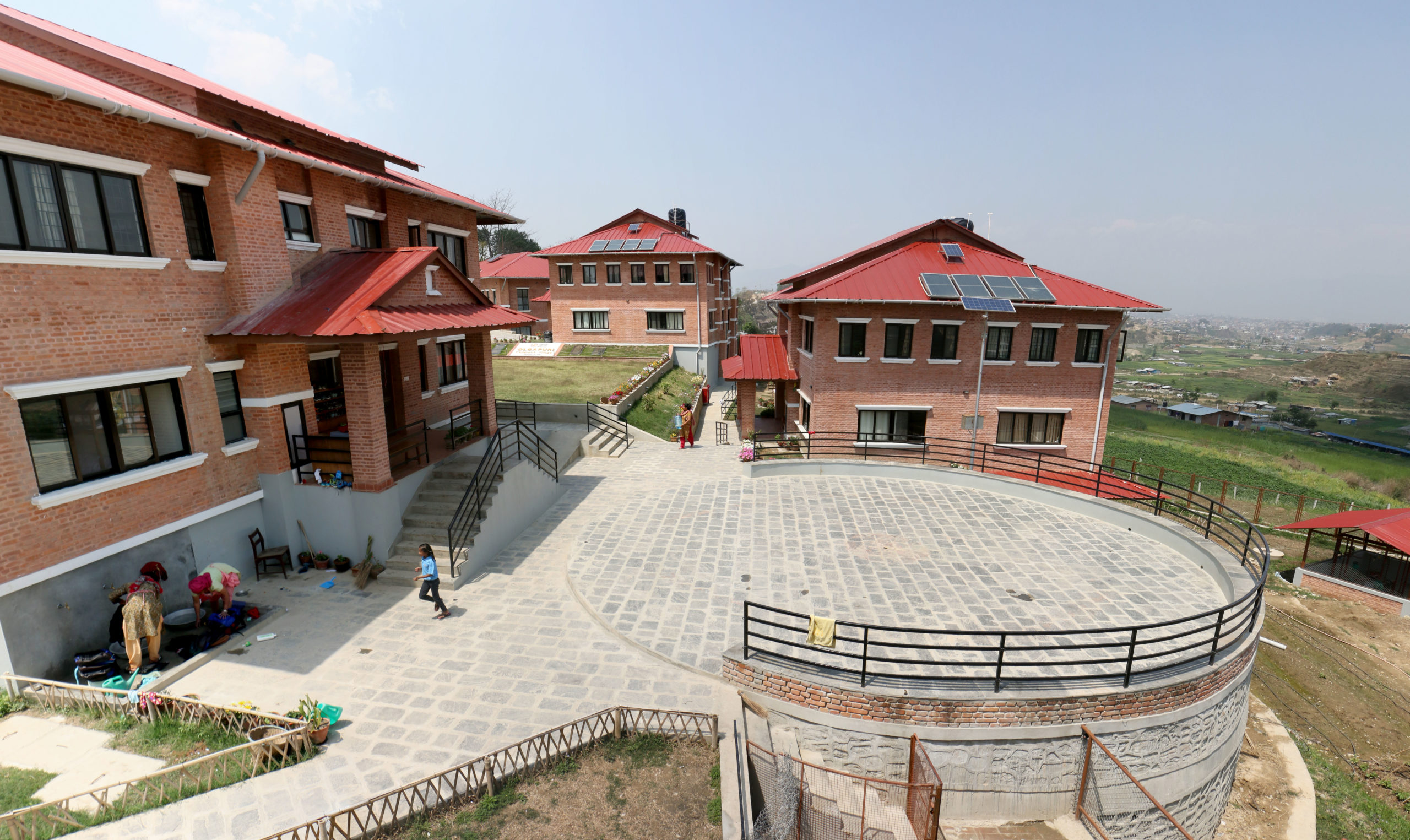
The enclosed campus, located in the Kathmandu Valley, features facilities like a basketball court, a library, a sprawling vegetable garden, and more to encourage physical and mental well-being.
History
Children everywhere need certain things to thrive—stability and structure, love and emotional support, education and positive role models, security, shelter, nutritious food, clothing, medical care, and protection. Unfortunately, through no fault of their own, this quality of care is not available to all children, leaving many to grow and develop in perilous circumstances.
Since 1992, NYF has provided safe, loving homes for some of these children. J House, NYF’s original home for boys, and K House for girls, were administered from rented buildings. From those early days, these residences offered a sanctuary for “…orphans, abandoned and disabled children, child laborers, street kids and youngsters who had been living behind bars with an incarcerated parent. Some had endured more trauma and suffering from an early age than many of us experience in a lifetime. Each child arrived with a unique, heart-breaking story. What they had in common was a chance to begin a new life –an opportunity to start over as part of the J & K House family” (Olga’s Promise, book by NYF’s Founder, Olga Murray).
But NYF leaders in the United States and Nepal dreamed of providing these children with a better, larger, more beautiful space. Thanks to extremely generous support from committed donors, we were able to secure a piece of land in Lalitpur, Kathmandu Valley, large enough for our dream village.
Olgapuri Children’s Village was opened in 2016. The children living at J House and K House transferred to the new campus and were joined by new brothers and sisters. The campus continues to develop year after year, with recent additions including a small theatre space and several greenhouses.
Since 1992, almost 200 children have been raised in these homes and have become successful parents, teachers, doctors, engineers, lawyers, I/NGO workers, government employees, social workers, and more. Graduates from Olgapuri Children’s Village speak fondly of their time here, recalling festivals, friendships, and family connections that last well into the future.

Olgapuri siblings often form lifelong friendships with one another, fondly recalling festivals, friendships, and family connections. Photo taken by Lena Stein.
Education & Academic Performance
Olgapuri’s young residents are enrolled at some of the best public and private schools in Nepal: Adarsha School, Phoenix School, and Ullens School. Children who are interested may also take music lessons on weekends, and many of the children have chosen to do so.
As Olgapuri children approach their late teens, they are provided with guidance concerning continuing education, career paths, and other opportunities. The vast majority choose to continue into college, and these students are moved automatically into NYF’s Scholarship Program for the duration of their studies, with all housing and tuition costs covered. Some graduates prefer to pursue a skilled trade, and these students are supported as well, through NYF’s Vocational Education & Career Counseling program.
No matter their chosen path, NYF is committed to supporting each Olgapuri child until they have achieved self-sufficiency.

One of the major duties of the house parents is to consult with teachers about each child’s academic performance, specific needs, or behavioral issues. This specialized attention ensures good academic outcomes for the children and shows each child that he or she is cared about as an individual. Most years, each Olgapuri student moves forward successfully into the next grade.
Health & Psychological Support
Ensuring healthy growth and development is a major focus at Olgapuri, whether for children experiencing routine bumps, bruises, and the sniffles, or for those with special health care needs. Fresh, balanced meals are prepared on-site with the support of NYF’s team of nutritionists, and house parents take care to encourage regular exercise and to support age-appropriate hygiene habits. A pediatrician visits Olgapuri once per month and is available for consultation when needed. During the COVID-19 pandemic, these visits have not occurred in person, but regular care has been coordinated over the telephone.
One of the key services at Olgapuri is the world-class psychological care provided by NYF’s Ankur Counseling Center. The children living at Olgapuri have each experienced unique losses and challenges. Many of them, understandably, come to us struggling with issues around trust, abandonment, emotional security, attachment, and more. Our trained counselors are devoted to helping each child develop the emotional skills and competencies that promote empowerment, healing, appropriate boundaries, positive coping, connection, self-esteem, and resilience. This care is provided through ongoing, specialized individual and group child-centered therapy sessions. During the COVID-19 pandemic, this care has continued via teleconferencing software and has been augmented with additional support to help the children deal in an age-appropriate manner with the anxieties of living through this once-in-a-lifetime event.

Routine check-ups for the children at Olgapuri include eye exams.
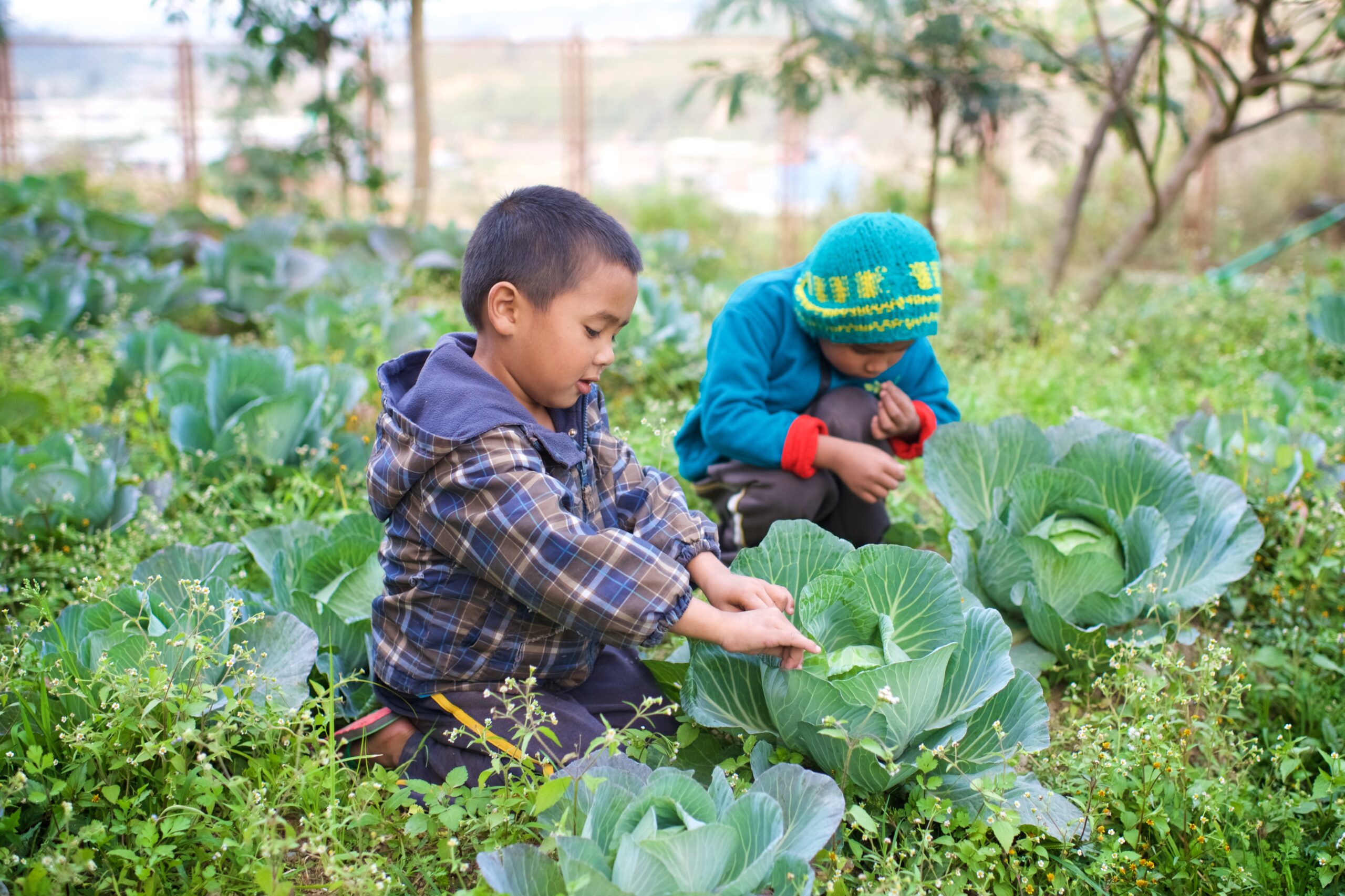
The Olgapuri garden always has healthy and organic vegetables, helping to ensure strong development for the kids in our care. Agriculture is still a major livelihood in Nepal, and access to a garden like this one provides many kids with a connection to their heritage.

Counselors from NYF's Ankur Counseling Center (ACC) frequently work with the youth at Olgapuri. Interventions include workshops, yoga, sand-play therapy, counseling, and more!
Staff & Capacity Building
Staff training and support is critical at Olgapuri. Like the children, our staff members receive classes and workshops from Ankur counselors, including tips on positive communications skills, self-reflection, and child management. These resources allow staff members create the safe, trusting environment Olgapuri strives to be for every child.

Photo taken by Lena Stein.
Recreation & Culture
Happy childhood memories often grow around recreational and cultural activities within the broader community: art, leisure, sports, festivals, rituals, and more. Many of the children who have grown up in NYF’s children’s homes look back fondly on the celebrations enjoyed here, identifying these as part of what makes these homes a real family environment. NYF is especially committed to connecting the children to the rest of Nepalese society, their history, and the individual regional cultures they come from.
Each year, Olgapuri holds a farewell celebration for outgoing children and a welcome party for newcomers. A joint birthday party is held each spring, and each fall, Olgapuri Day commemorates the day the village first opened its doors. Nepalese holidays are honored, including Dashain, Tihar, Yomari Purnima, Holi, and more.

A child receives Tikka blessings from house parents during the 2020 Dashain celebration at Olgapuri Children's Village. Occasionally, these celebrations are held jointly with other local children’s homes, to deepen the sense of community.
Your Donations
Olgapuri Children’s Village is supported by thoughtful gifts from donors passionate about child welfare, with some individual children supported through our Sponsorship program.
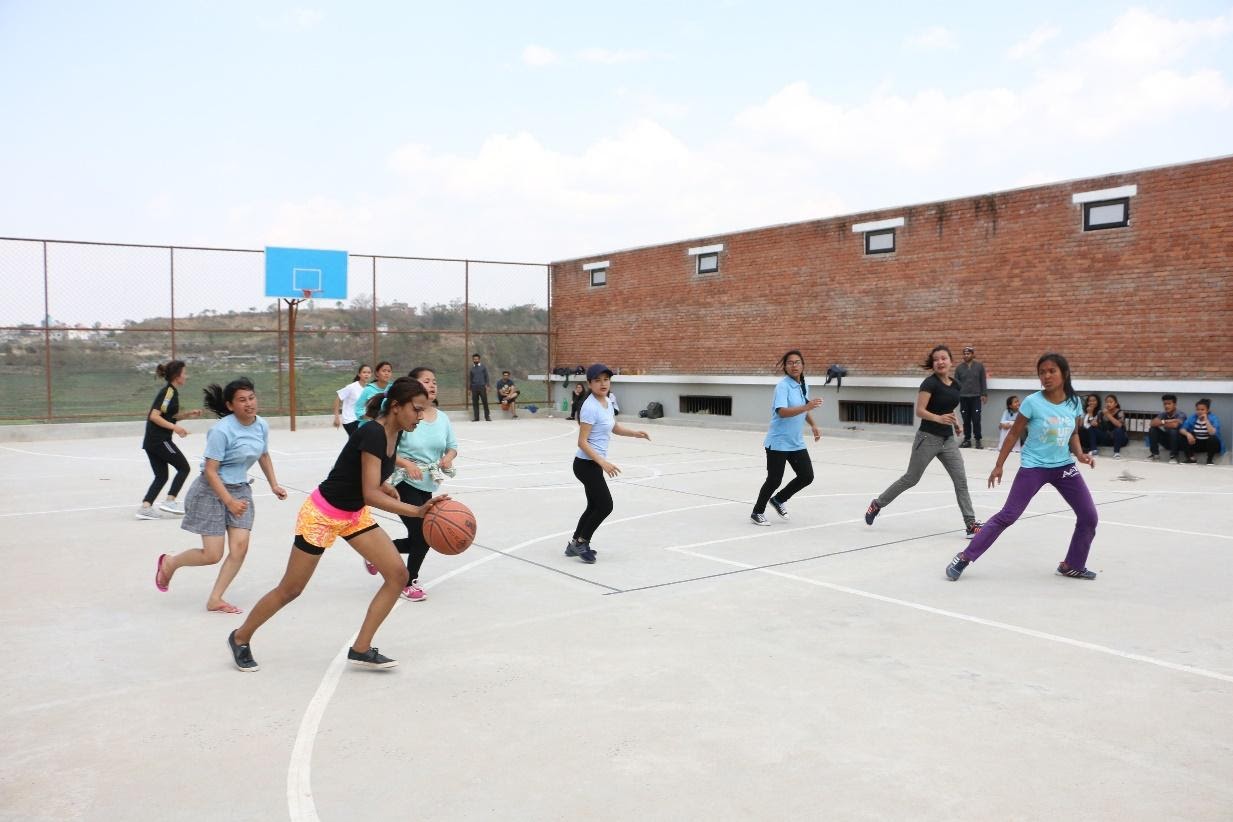
Recreation isn’t just for special occasions and holidays. The children are encouraged to spend leisure time together, playing sports outside or making memories with board games and craft projects. Basketball, soccer, hiking, cycling, gymnastics, dancing, and swimming are beloved activities at Olgapuri.

A special “movie theatre” beneath the dining hall allows staff members to screen movies and documentaries on Friday nights, and the space is often enjoyed during the week by children wanting to organize talent shows, recitals, and performances.

Related Articles
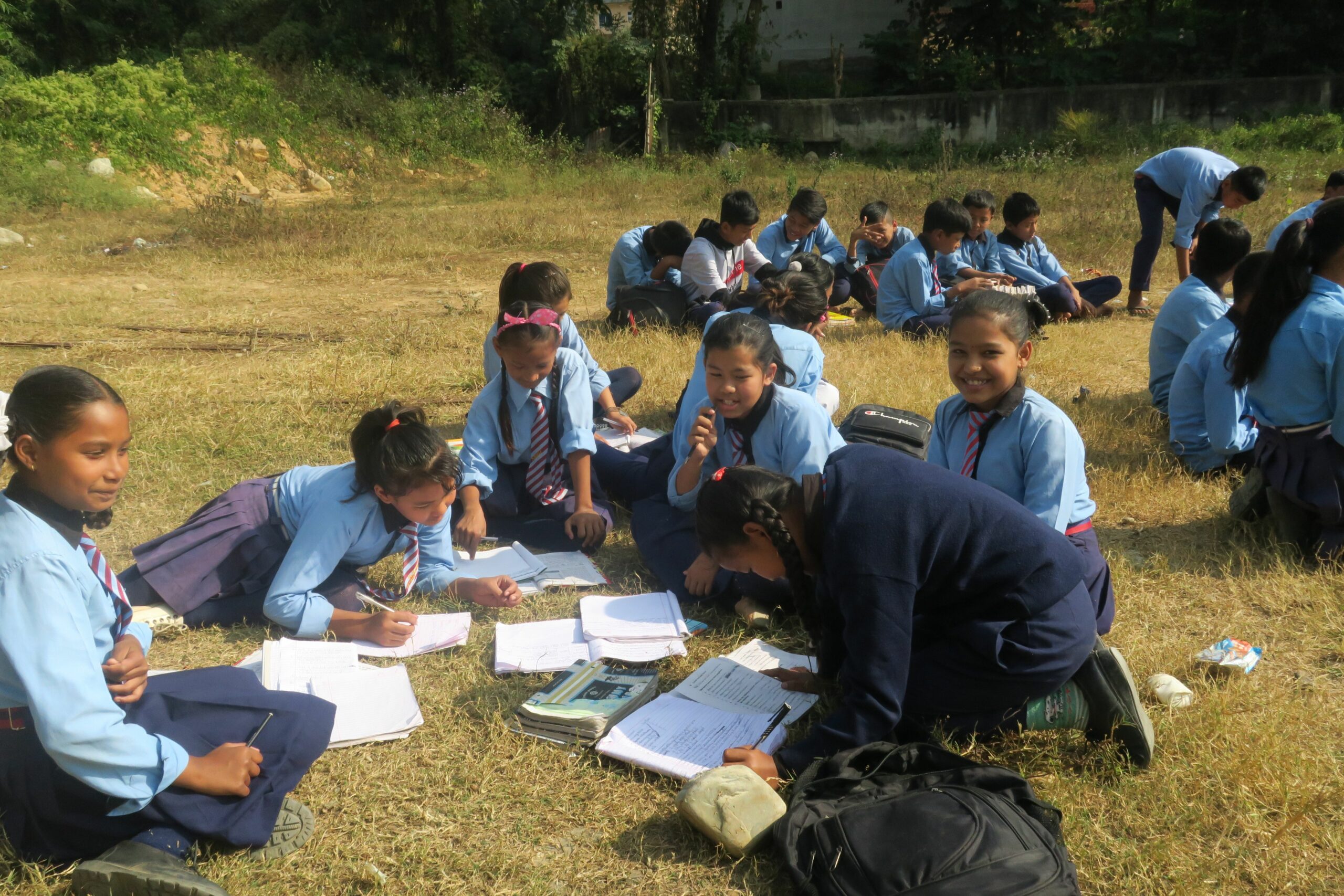
Scholarships for K-12 and College Students
Nepal Youth Foundation was founded on the promise of education—the belief that all children should be able to access a good-quality education and be empowered to pursue their dreams.
In our decades of operation, NYF has grown into one of Nepal’s largest non-governmental scholarship providers.
Scholarships allow children and youth to attend grades K-12, college, medical school, and graduate school, prioritizing those experiencing systemic oppression, financial hardship, and other challenges. We also offer Scholarships for Students with Disabilities and, through our Vocational Education & Career Counseling program, technical education scholarships.
The over 12,000 students we have supported so far are Nepal’s future teachers, doctors, NGO leaders, architects, designers, small-business owners, government officials, and more. Our students are studying in 28 of Nepal’s districts and attend nearly 400 schools and colleges.
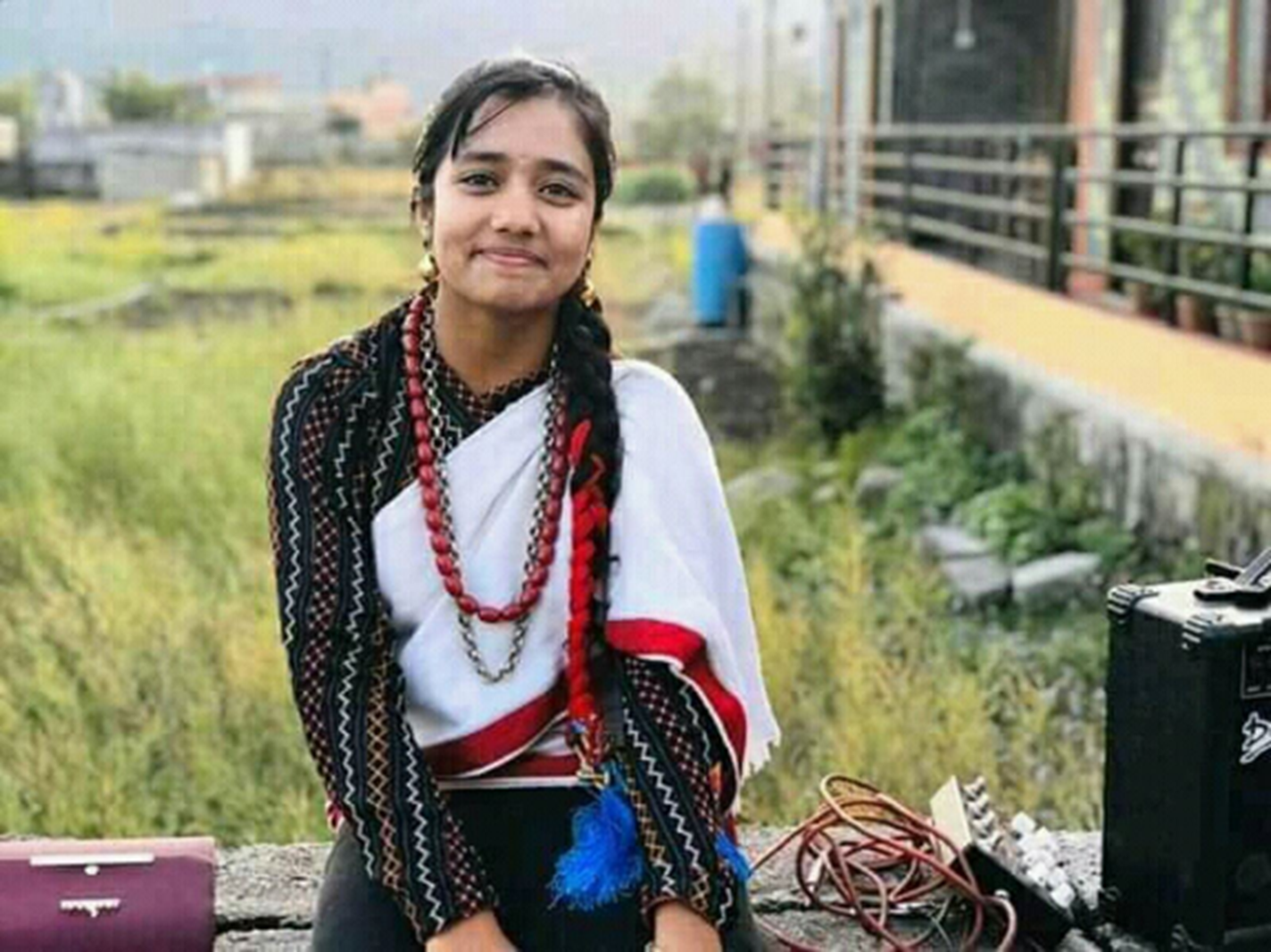
Laxmi*, 17, earned a remarkable high score on Nepal's "Iron Gate" exam at the end of 10th grade (only 50% of students pass the rigorous Secondary Education Exam). Her scores made her eligible to attend a great school for 11th and 12th grade, but her parents - subsistence farmers in their rural village - couldn't afford the daily bus fare to get Laxmi to and from class each day. NYF stepped in to ensure Laxmi can continue her studies. Opportunities like these will transform Laxmi's economic future - and the future of her family as well.
Day School Scholarships (K-12)
Day School Scholarships are awarded to students whose families are unable to afford the expenses associated with school attendance, like notebooks, uniforms, and kerosene for doing homework after dark.
These small scholarships make an incredible difference in the lives of entire families—lowering the likelihood of child marriage, increasing economic empowerment, and opening opportunities that benefit families far into the future.
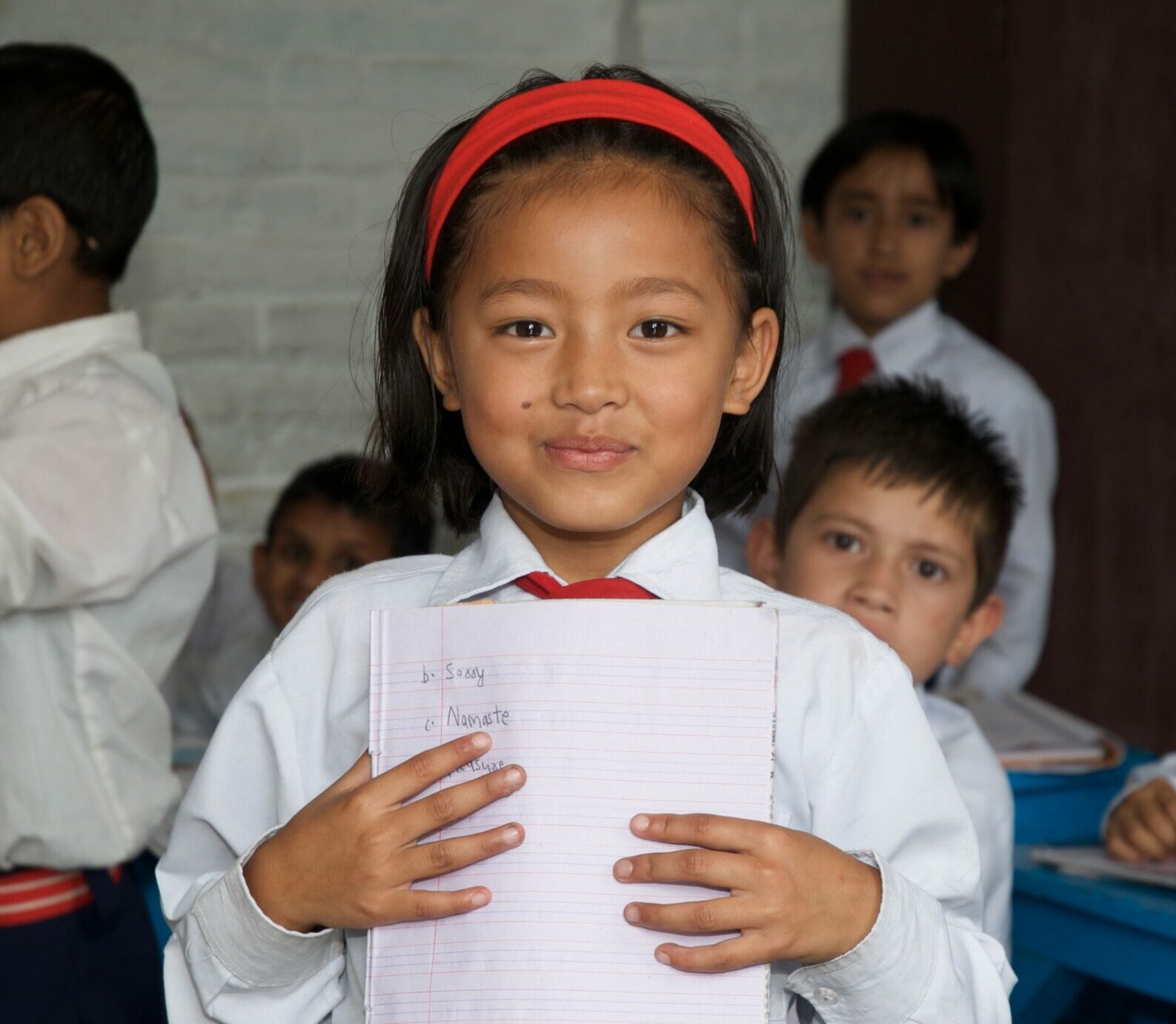
Nine-year-old Mina* shows off her English assignment. Mina's mother deeply wanted her daughter to attend school - an opportunity she didn't have as a child. But the family was barely getting by, and couldn't afford Mina's uniform, supplies, and other necessities. A Day School scholarship allows this growing girl to keep coming to school, where the things she learns will open opportunities for her to chase her dreams.
Boarding School Scholarships (K-12)
Boarding School Scholarships are for those who need total support for education, housing, and other expenses. Often these needs arise because the student’s family lives too far from the nearest school, or because a particularly motivated student has been accepted to a competitive school far from their village. In other cases, a boarding school scholarship provides a stable living situation to an older student experiencing housing insecurity.
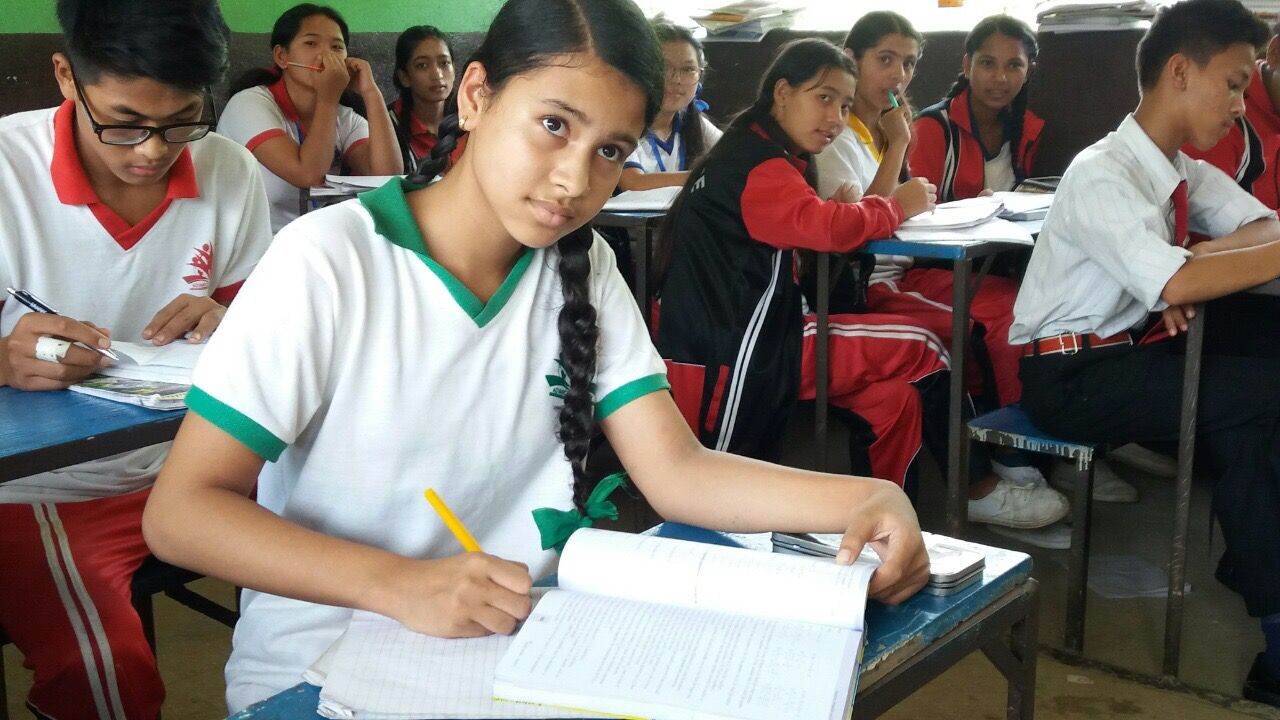
Pushpa*, 16, found herself without adult guardianship when her mother passed away. No extended family members were able to house her, either. When she was referred to NYF, it became clear that bright and motivated Pushpa needed a stable living situation and a place to study - but not much more. A Boarding School scholarship was the least disruptive solution for this eager student, including check-ins from an NYF social worker to ensure her needs are being met. Pushpa lives on campus with friends her own age, and she's adjusting well. NYF will support her educational journey until she is able to support herself after college.
College Scholarships & Beyond
NYF scholarships are also available for students in college, graduate school, medical school, and other higher-education programs.
Preference is given to deeply motivated, high-scoring students from oppressed minority groups, those experiencing financial hardship, or those facing other barriers to college-level education. Many students transition from K-12 scholarships into college-level studies with NYF support, but other students come to us at the college level having already successfully completed secondary school.
Scholarships cover expenses like tuition, necessary program materials, housing and board near their campuses, and transportation. Many of our students have earned full-ride academic scholarships from the Nepali government, and are in danger of losing those scholarships because they cannot afford housing or regular meals during their studies. NYF support ensures they can enjoy the rewards of their hard work.
After graduation, financial support from NYF ends to encourage each student to enter the workforce as soon as possible. NYF makes sure to leverage its network of contacts throughout the country to support these graduates in their job searches, and help is available to each in areas like resumé writing, interviewing practice, and other career counseling (see the Vocational Education & Career Counseling program).
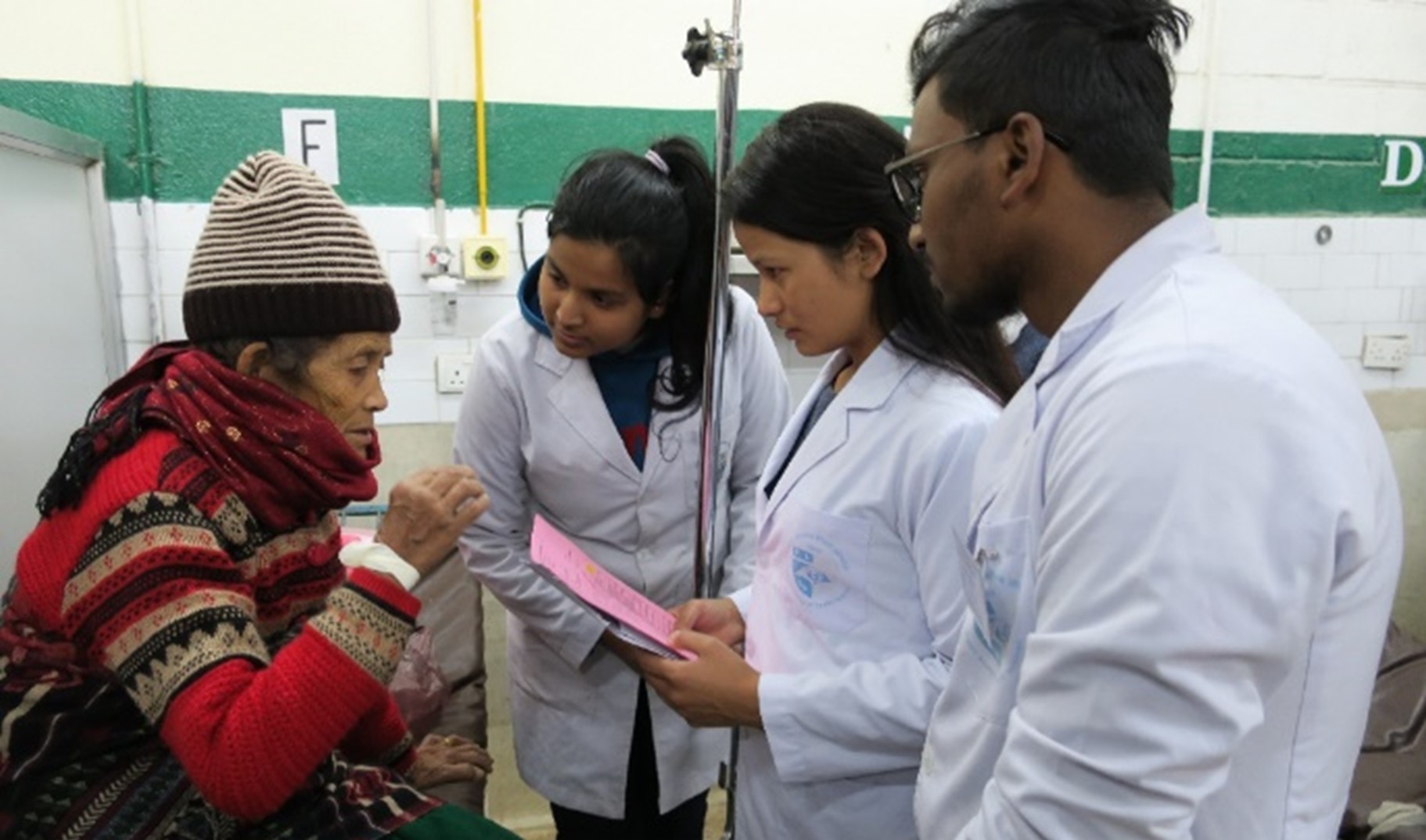
Purnima*, 24, Shristee*, 25, and Ravi*, 27, (left to right, in white) are each studying medicine on NYF medical school scholarships. They've progressed far enough in their studies to be taking on tasks in a teaching hospital in Kathmandu. Each of these students has had a long journey to this point - full of determination, long study sessions, discouragement, and triumph. NYF is so pleased to be helping train the medical professionals who will strengthen the health care infrastructure in Nepal!
Related Articles
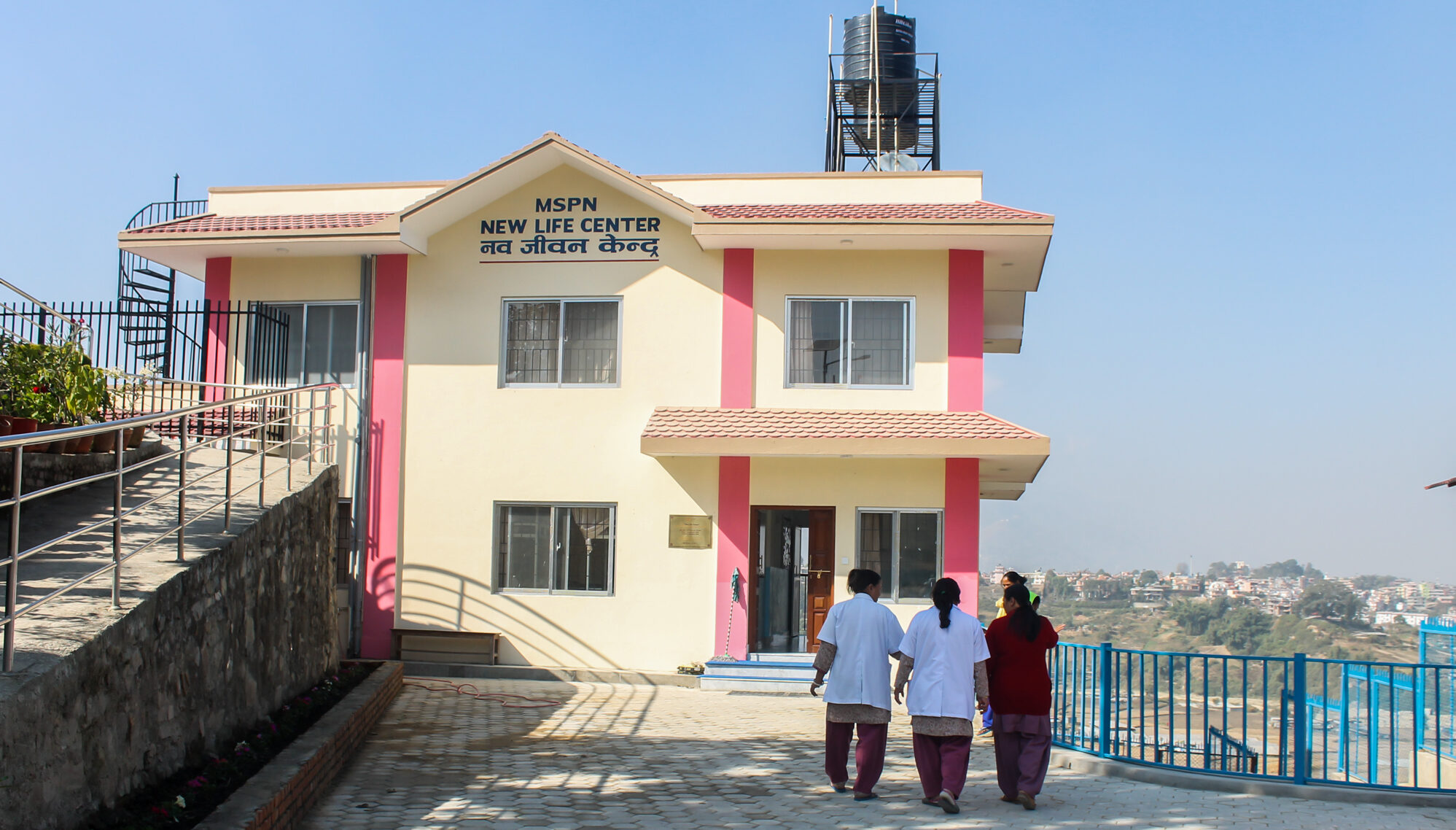
New Life Center - HIV/AIDS
Success!
The New Life Center was created in 2006 and focused on pediatric HIV/AIDS until 2023. Mother-to-child HIV transmission rates have plummeted in Nepal, meaning the number of children requiring specialized care has also declined. This has enabled NYF to open this beautiful facility to a wider population of children, expanding the NLC’s mission effective in 2023 (read more on our New Life Center – Medical Recovery Home page!).
The services described below are still available for families in need of them. Medical support is offered at the New Life Center. HIV/AIDS Awareness & Advocacy programming has now been absorbed into the work done through the Nutritional Rehabilitation Home.
The New Life Center (NLC) is a residential health center which between 2006 and 2023 provided specialized, supportive care to Nepali children (age 0 to 14) living with HIV/AIDS.
These young patients and their caregivers stay here for months at a time, free of charge, receiving specialized medical and nutritional support, psychological counseling, tutoring services, cultural celebrations, and more – until they are healthy enough to return home. Caregivers of these children receive vital information on hygienic practices, nutrition, and the effective management of HIV/AIDS, plus counseling services in partnership with Ankur Counseling Center.
After discharge, families unable to access the free antiretroviral medicine provided by the Nepali government benefit from delivery services by NLC staff.
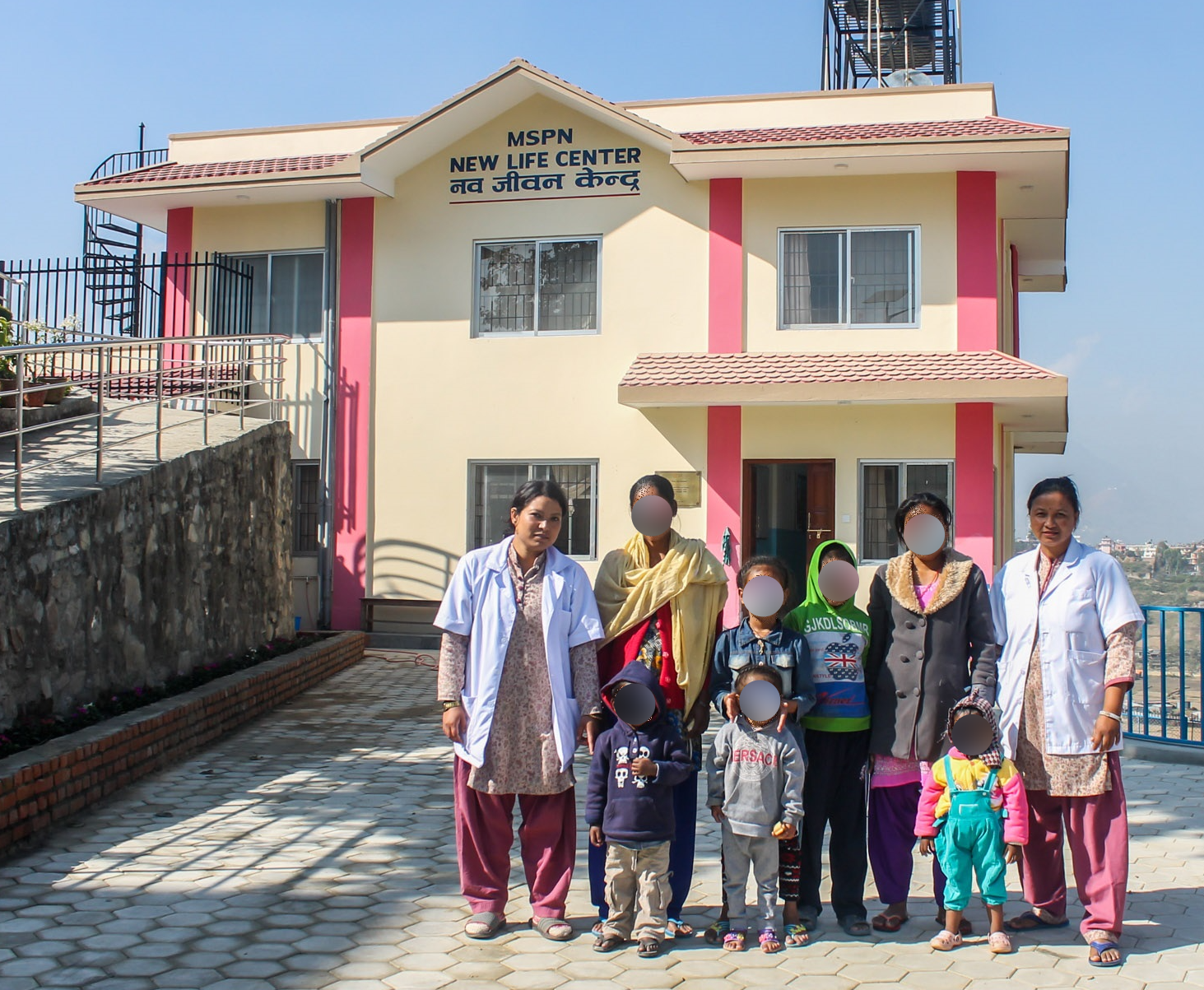
New Life Center nurses (in white) and two patient families pose in front of our beautiful facility at discharge. The New Life Center is located in Lalitpur, just outside of Kathmandu. Stigma against HIV is so great in Nepal that we can't show our patients' faces - but these moms are tremendously relieved to know the New Life Center is here to support them in managing their children's HIV.
How We Work
Because children’s immune systems are not fully developed, children living with HIV get much sicker than adults–and they do so more often as well. These children are exposed to all the same illnesses as other children, but even when their HIV is well-managed, their weakened immune systems struggle to fight effectively against common ailments like the flu, the common cold, urinary tract infections, and more. Tuberculosis and pneumonia are special dangers for Nepali children living with HIV.
The New Life Center provides these children with the support they need to survive and thrive with HIV.
Capable of treating up to 18 child-mother pairs on-site at a time, the NLC was built to provide holistic residential care to between 50 and 60 children living with HIV each year (often alongside their mothers, who are often also living with HIV).
Our NLC team helps children recover from illnesses, keep current on their medication, and perfect their HIV management practices at home. When an NLC child turns 15 (old enough for adult services), NYF matches them with their local HIV resources for adults, ensuring a smooth transition with no gaps in care.
Staff members include cooks, nurses, a nutritionist, a driver, and more, with hospital-based pediatricians visiting at least once a month.
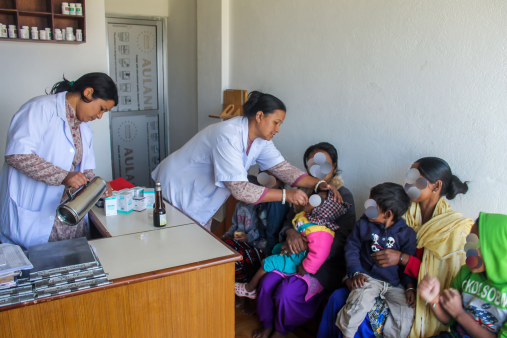
New Life Center nurses (in white coats) administer medicine to several children receiving care for HIV - as well as their mothers, also living with HIV. Stigma around HIV is so strong in Nepal that NYF must obscure the faces of these individuals, but here at the New Life Center, everyone is treated like family.
Beginning in 2022, in response to lessons learned during the COVID-19 pandemic, we expanded our outreach capabilities to provide home-based care options for rural families who are unable to spend months out of the year in Kathmandu Valley. Mothers in need of income generation help became eligible for some of our programs aimed at small business start-ups. (See Vocational Education & Career Counseling.)
HIV/AIDS Awareness & Advocacy
In coordination with our hospital friends and grassroots partners, NYF expanded our HIV/AIDS Awareness efforts in 2022 and 2023. This included a telephone helpline for those hoping to keep their status private, as well as the production and distribution of Nepali-language educational resources for caregivers. Our hope is that by expanding our reach in this way, we can save and enrich many more lives – and help Nepal continue its progress in addressing this global challenge.
We’re proud to have a developed a clear, illustrated Nepali-language HIV/AIDS information and home health guide to help families understand and manage this challenging diagnosis. Copies of this booklet have been distributed to individual families and to local health posts and the offices of other Nepali NGOs working to address HIV in their communities. (You can download the booklet below or view it as Flipbook on our website).
Our team released two radio public service announcements, each recorded in Nepali and the Bhojpuri language. For one year, these brief clips played several times a day (including prime time) through the Ujjyalo Network—a nationwide network of FM radio stations throughout Nepal, with millions of listeners a day. FM radio is the most popular information source in Nepal, reaching rural and urban listeners alike.
The sound files below include translations into English of the important information shared over Nepal’s radio waves to challenge social stigmas, prevent further spread, and empower individuals living with HIV to access important health resources.
Pediatric HIV in Nepal
People living with HIV/AIDS in Nepal face social isolation, medical neglect, and physical and emotional abandonment. Though the Nepali government offers HIV medication and other treatment programs free of charge, these services are difficult to access for patients in remote villages. Some hospitals still refuse care to affected people.
Many children are only diagnosed after their fathers, and sometimes both parents, have died of the disease. Tragically, low diagnosis rates have resulted in some mothers unknowingly passing the virus to multiple children. These children are at extremely high risk. HIV/AIDS is one of the most stigmatized illnesses in Nepal. Schools shut their doors. Non-infected children won’t play with them, and they’re banned from village activities. As kids living with HIV/AIDS become desperately sick with opportunistic diseases and feel brutally ostracized, their quality of life plummets.
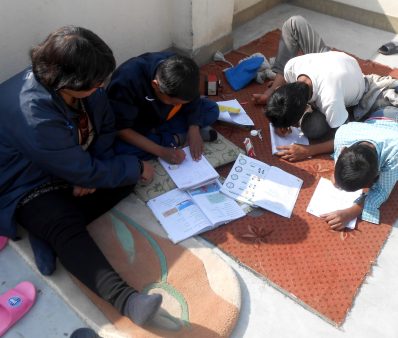
A group of children enjoy a sunny afternoon on a balcony area at the New Life Center. Times like this - coloring and enjoying the simple medicine of sunshine and good company - help these kids feel less alone, and more like children.
Problems related specifically to HIV/AIDS in Nepal – in particular where children are concerned – include:
- Scarce specialized programs for people living with HIV/AIDS
- Limited access to available programs and resources, particularly for families in geographically remote villages
- Cultural stigma and superstition around HIV/AIDS status
- Low and late diagnosis rates, especially for rural communities
- Parental death leaving behind orphan children unable to access care
- Large families prioritizing uninfected children
- Necessarily-long hospital stays for children receiving care
- Endemic malnutrition throughout the country
NYF works closely with many other local organizations serving communities living with HIV to respond to these problems as effectively as possible.
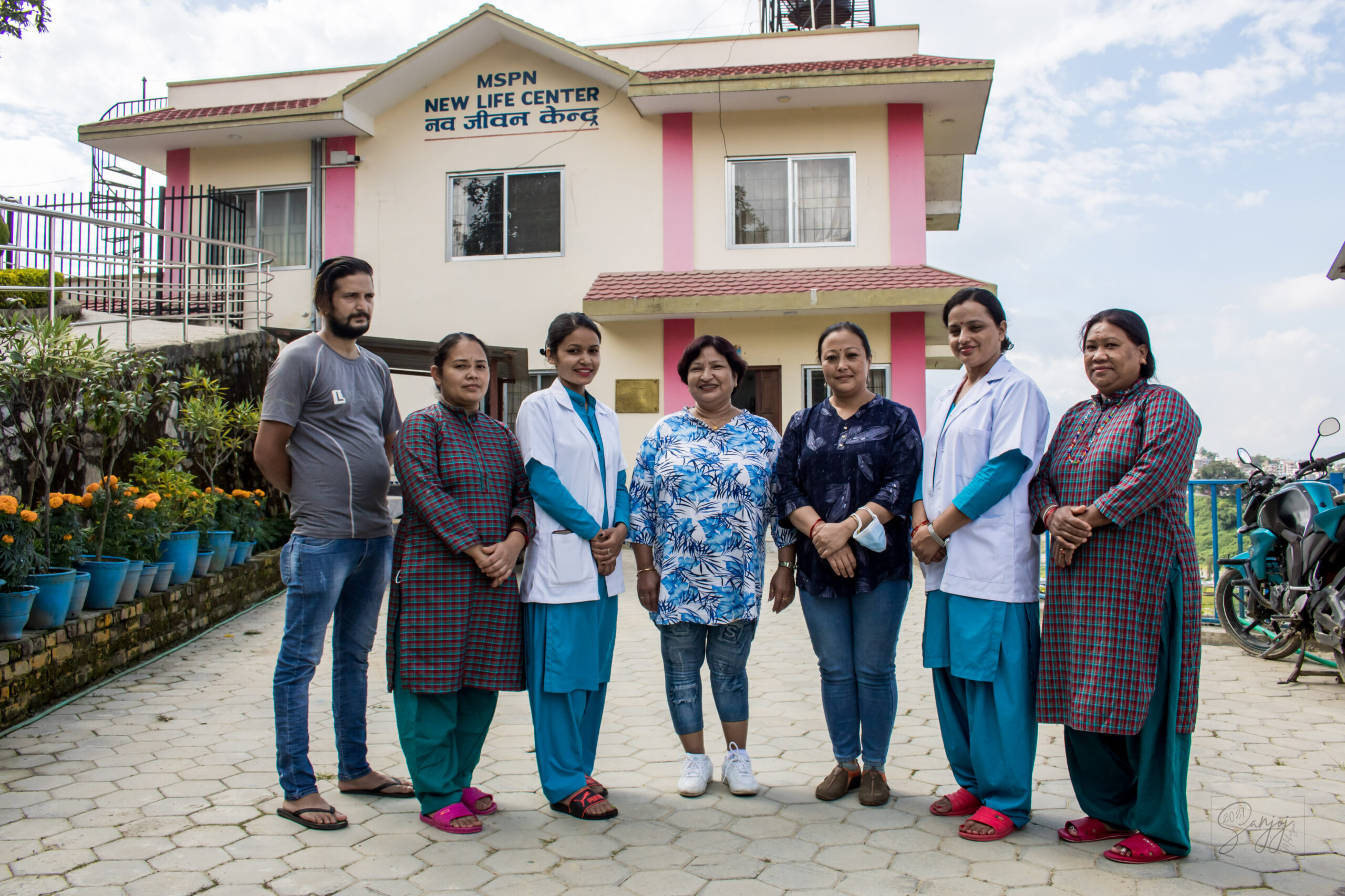
The New Life Center is located in Kathmandu Valley, next to NYF's flagship Nutritional Rehabilitation Home. Here, our incredible team (pictured above) ensures families living with HIV are safe, nurtured, and supported in their journeys of becoming.
Fortunately, facilities and programs like those offered through the New Life Center and our community partners empower children and families to harness their potential and live full, rich, joyful lives. Building on a strong foundation of nutritional care, attention to a medical routine, and psychological counseling, the New Life Center helps children and families regain control of their health and chase their dreams.
Related Articles
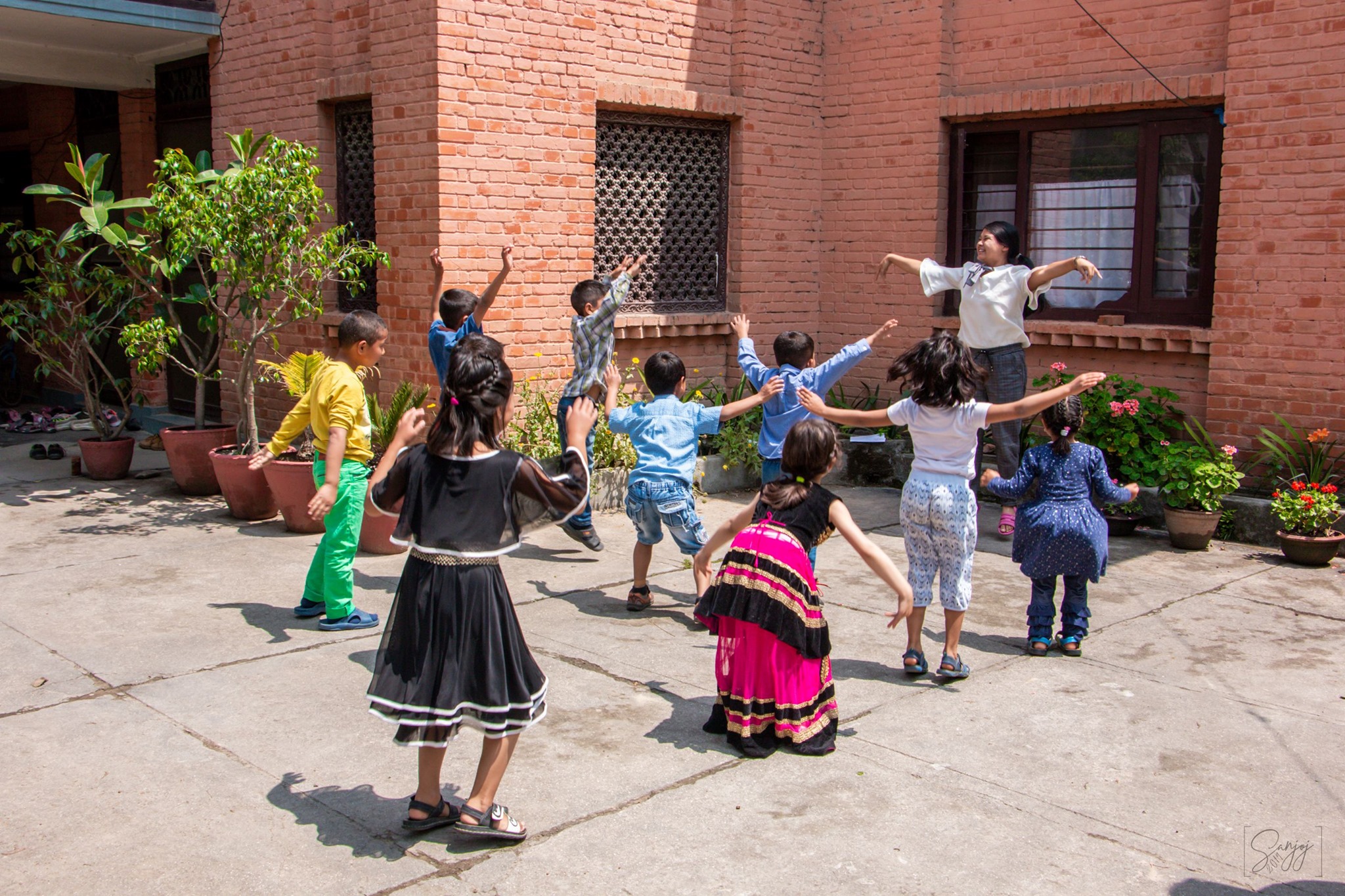
Ankur Counseling Center
Ankur is the Sanskrit word for “flower bud,” “sapling,” or “sprout”.
It’s also the name of Nepal’s first counseling center for children—NYF’s Ankur Counseling Center.
Using proven techniques like sand play therapy, cognitive behavioral therapy, and creative movement therapy, Ankur therapists help children coping with trauma, grief, and loss—as well as struggles like ADHD, anxiety, and low self-esteem. Age-appropriate workshops are available on subjects including life skills, bullying, self-care, sexuality, drug abuse, stress management, and more.
Led by a team of passionate therapists and counselors specializing in children’s mental health, Ankur provides individual and group therapy, as well as empowerment workshops and peer counseling training. Competitive, highly-respected internships are available for Nepali college students majoring in psychology and social work.
Individuals surveyed about the care received through NYF routinely identify the counseling services as the most immediately helpful benefit of our programming.
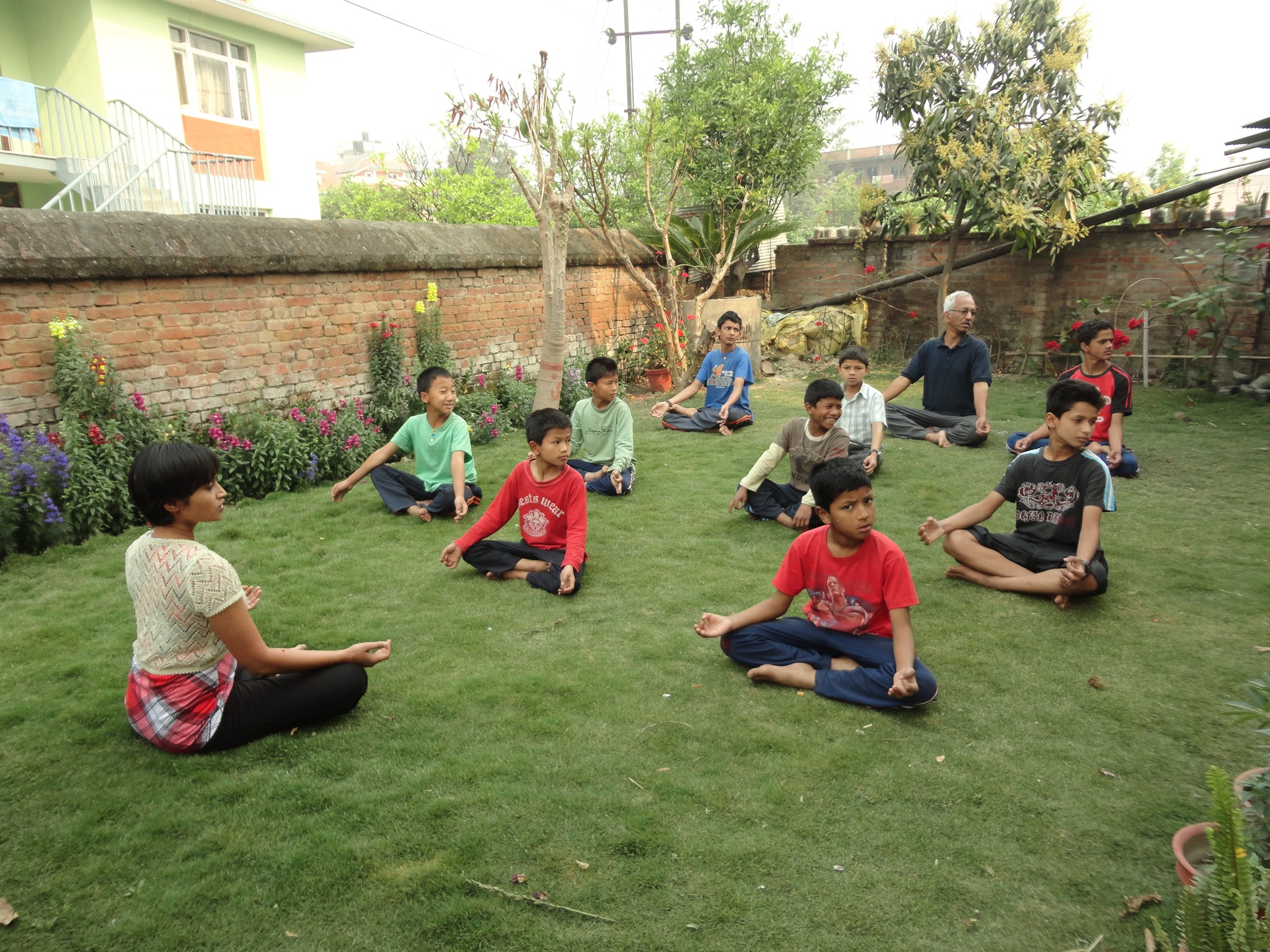
Children participate in a yoga class led at Ankur Counseling Center. The practice has become a vital tool in mental wellness and stress management across the world, but it originated right here in Nepal and Northern India! Ankur counselors love opportunities to use culturally-meaningful practices to help children deal with everyday stresses - as well as tougher challenges.
Ankur Counseling Center plays a critical role in many of NYF’s programs. For example:
- Children living at Olgapuri Children’s Village receive regular group and individual counseling. They also attend regular workshops on important topics like boundaries, safe and unsafe touch, and stress management.
- Staff members at Olgapuri also receive special training through Ankur, as well as regular support in addressing behavioral issues in ways that support each individual child’s development.
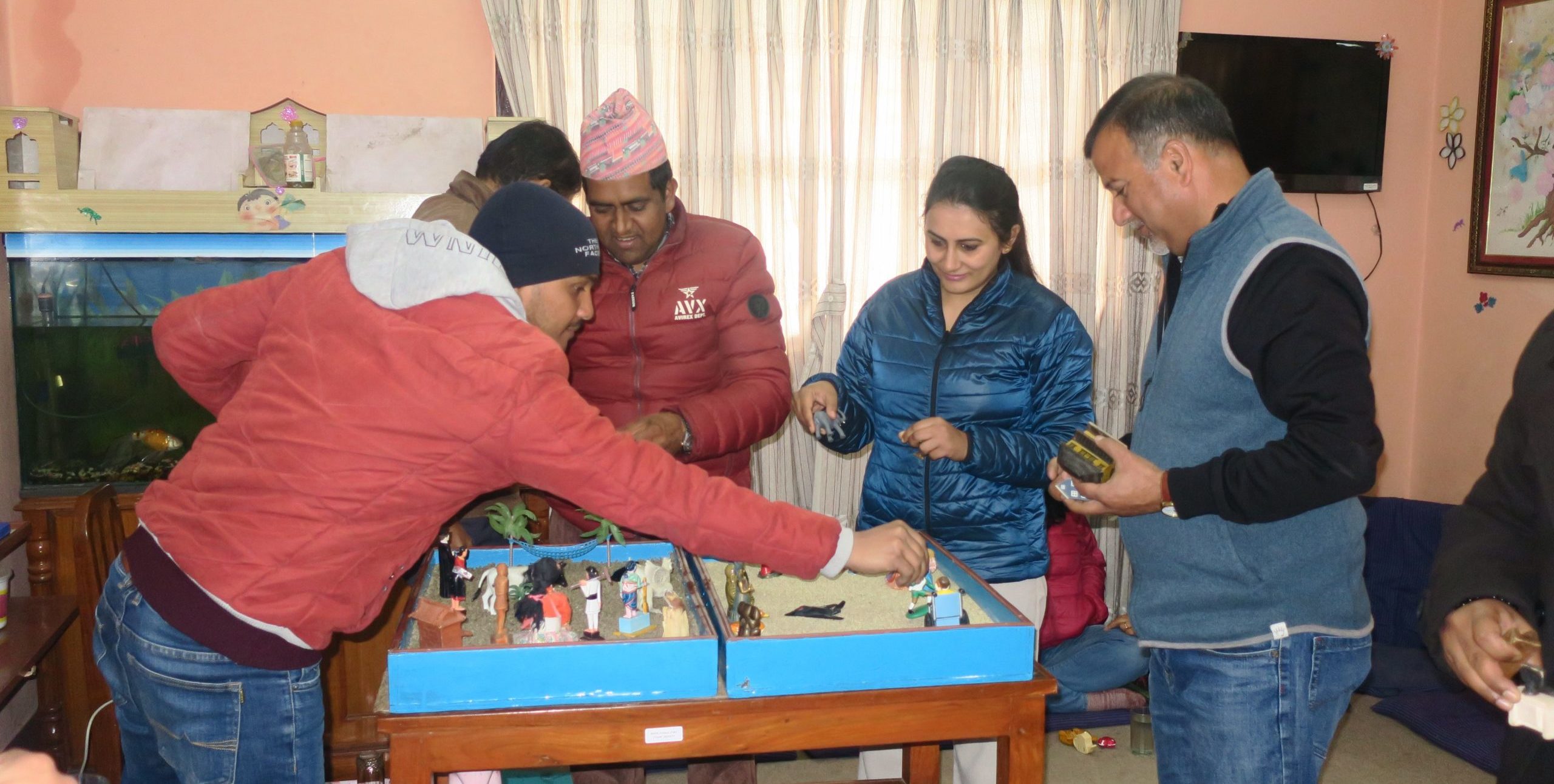
NYF staff members participate in an Ankur workshop, learning the basics of sand-play therapy. Understanding these tools will help the adults better relate to the children NYF cares for, and the ways children express complex feelings.
- At the New Life Center, individuals coping with the life-changing diagnosis of HIV benefit tremendously from receiving therapy both one-on-one and in groups. This includes remote therapy over the phone!
- Our Vocational Education & Career Counseling team offers regular Ankur-led workshops. Favorite topics include goal setting and decision making, team building, women’s empowerment, and stress management.
- Scholarship recipients who express mental health struggles are eligible for therapy.
- During NYF’s response to the COVID-19 pandemic, our therapists also released important Nepali-language self-care information over social media and began providing remote mental health services to front-line healthcare workers. Local nonprofits addressing women’s issues like domestic violence received special support and training to help address the sharp uptick in these issues during extended COVID-19 lockdowns.
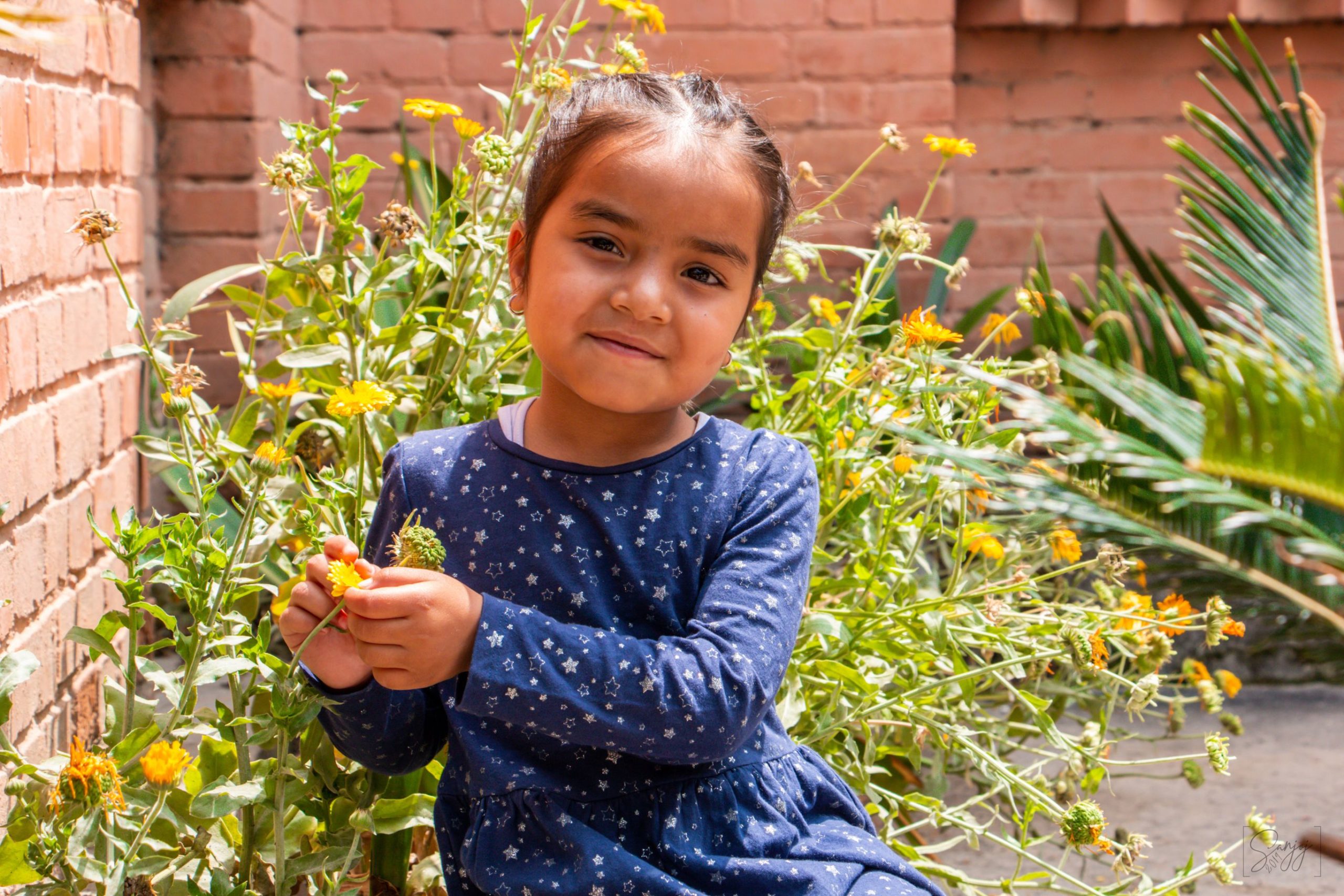
Children benefit from different kinds of therapy than adults do - and the experts at Ankur are determined to empower each child they treat as early as possible!
Your Donations
Ankur Counseling Center is partially supported through paid services made available to the general public in Nepal. However, services through NYF’s programs, and services rendered for individuals unable to afford regular therapy, are supported through the thoughtful donations of NYF supporters.
Dhanyabad!
